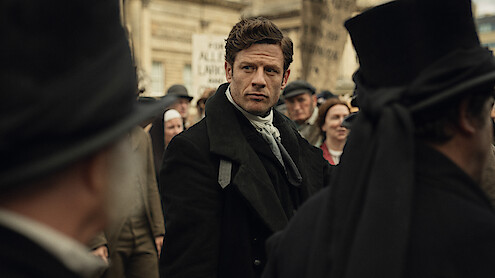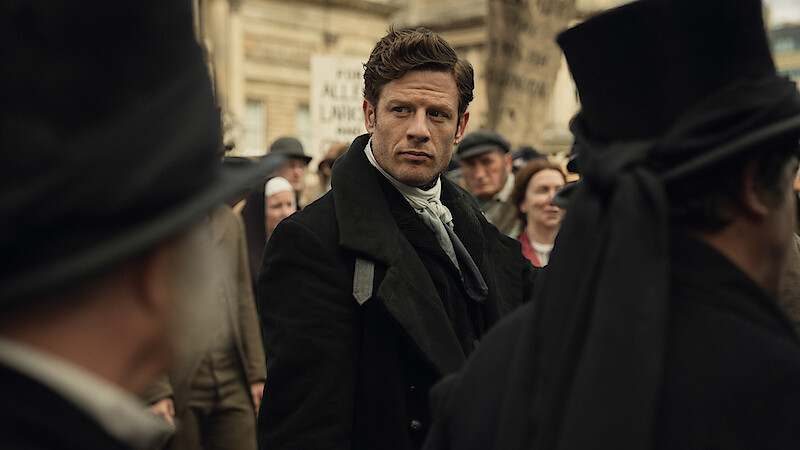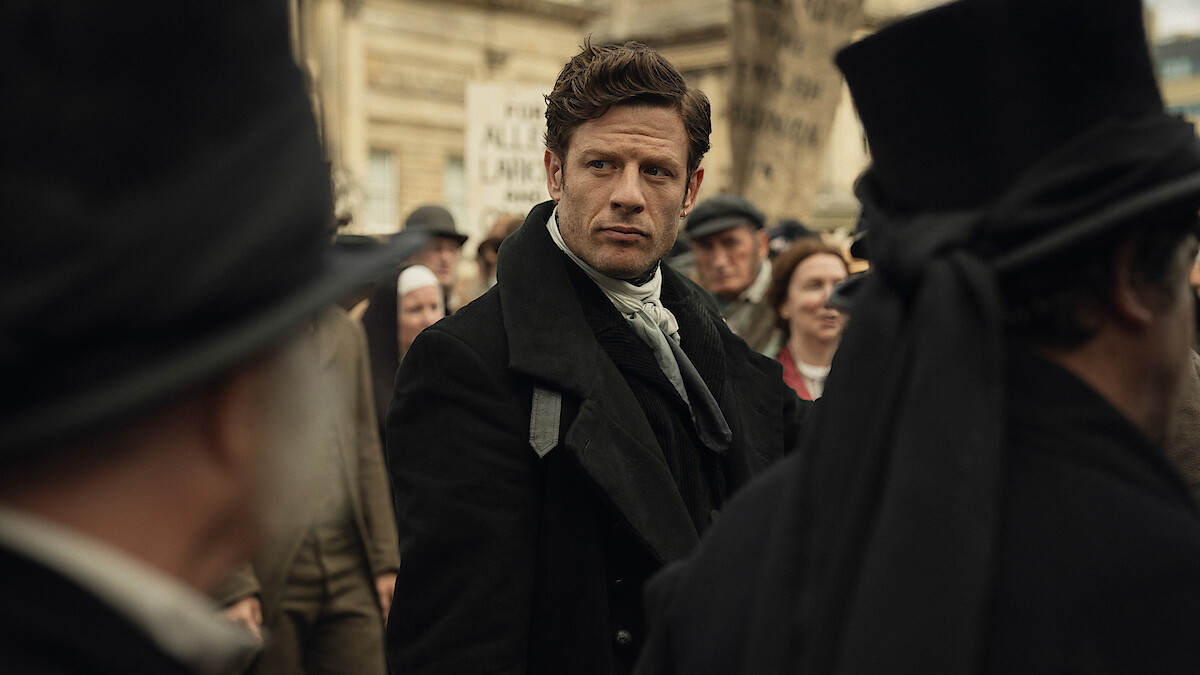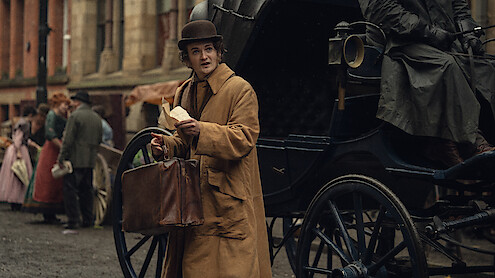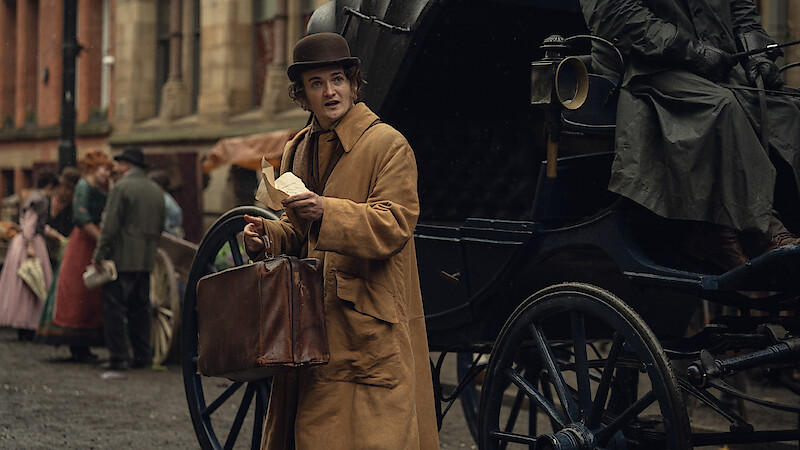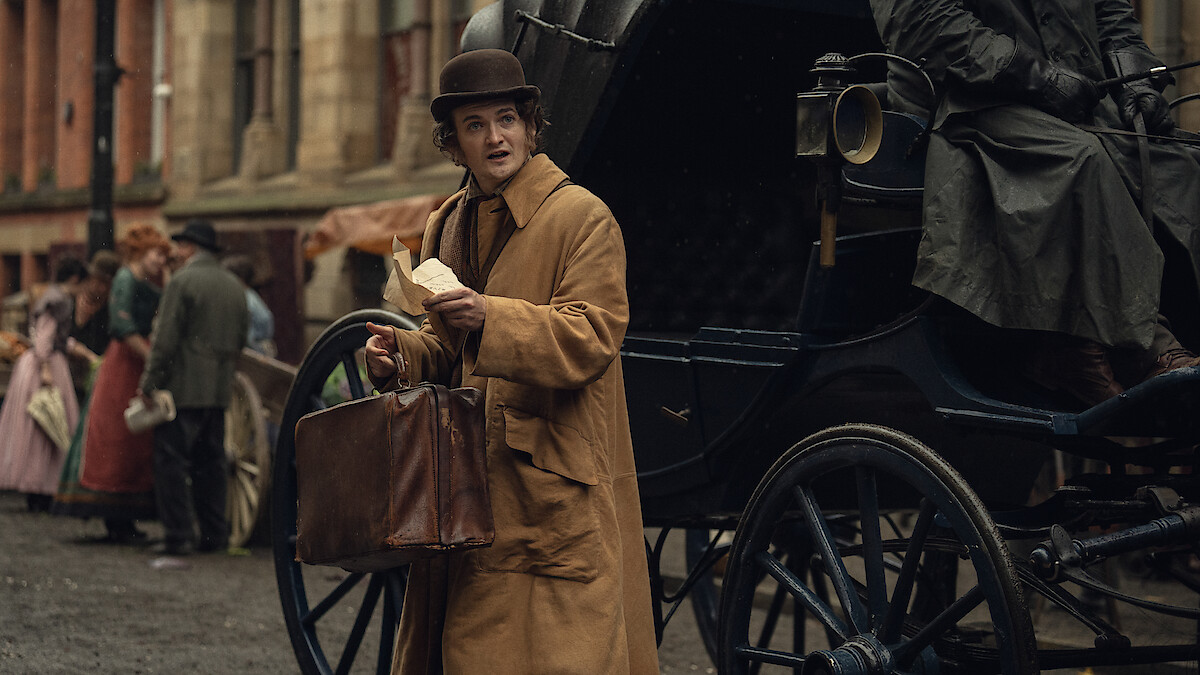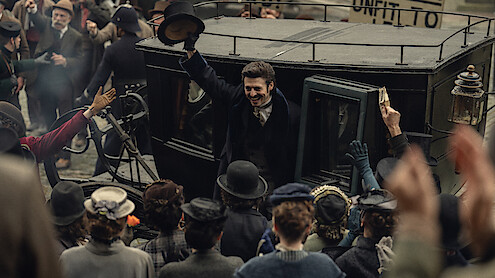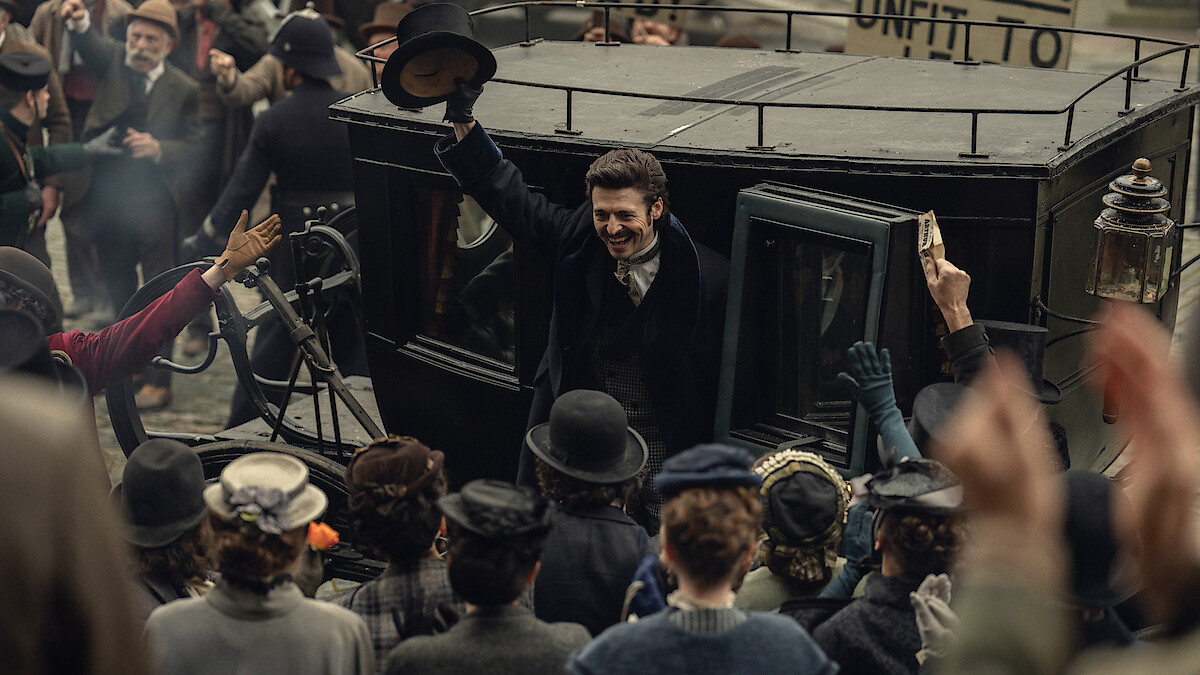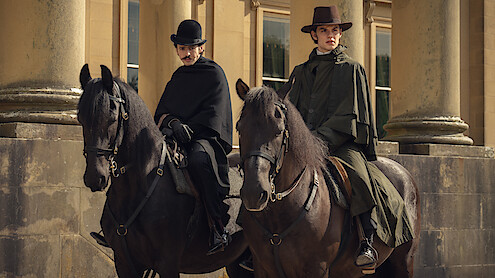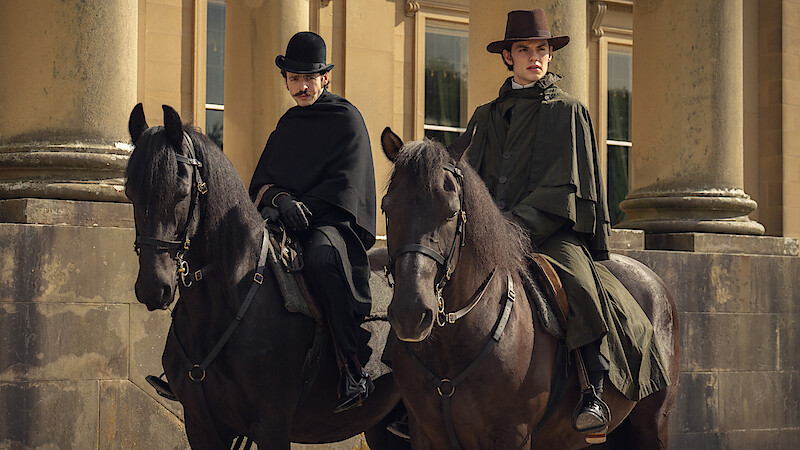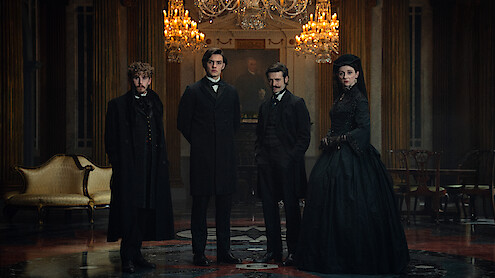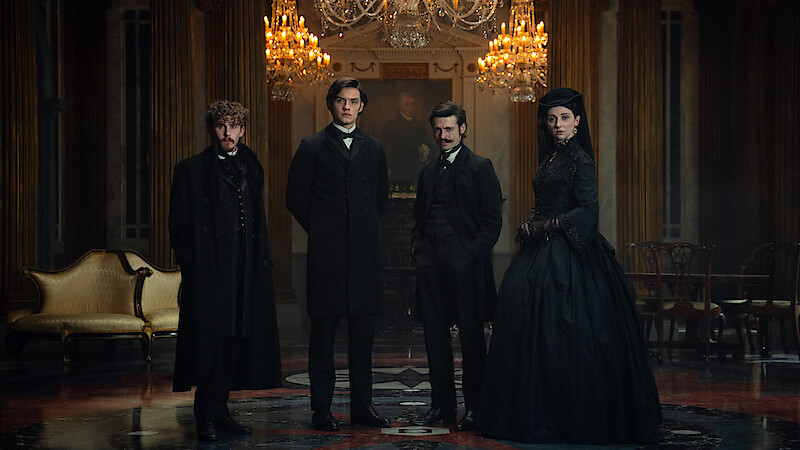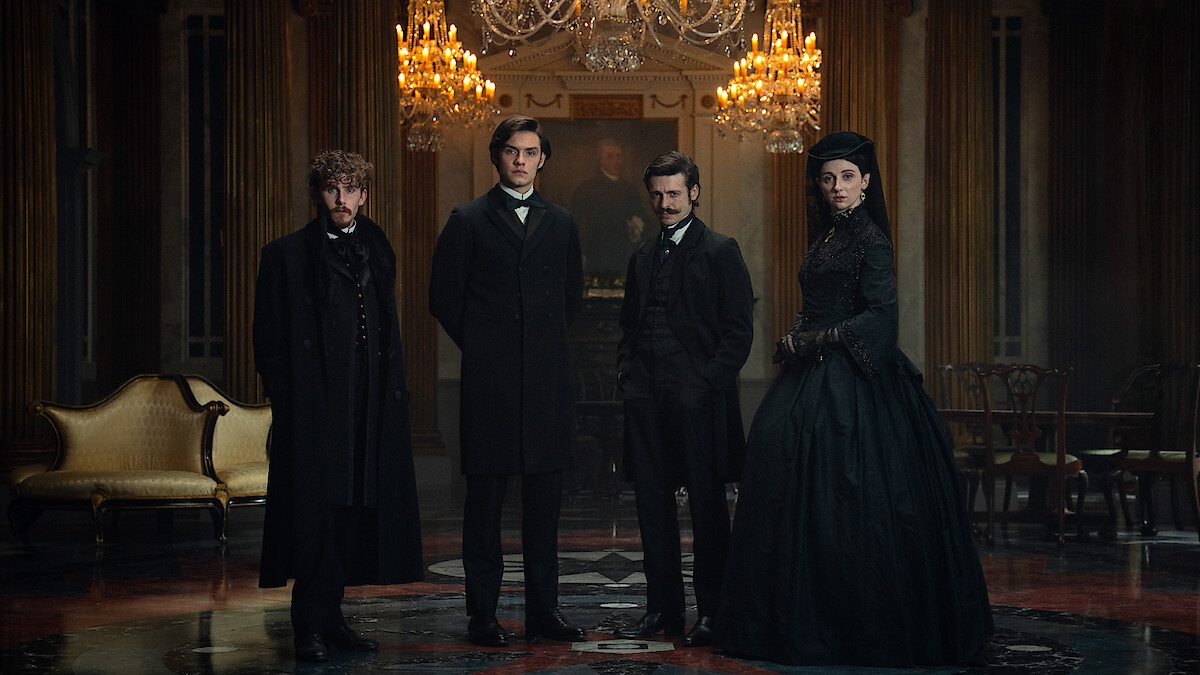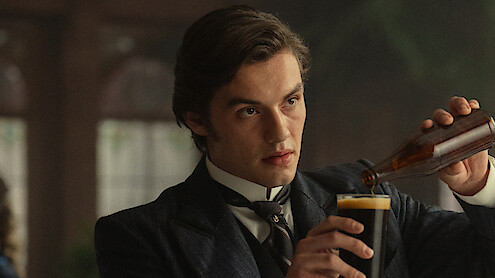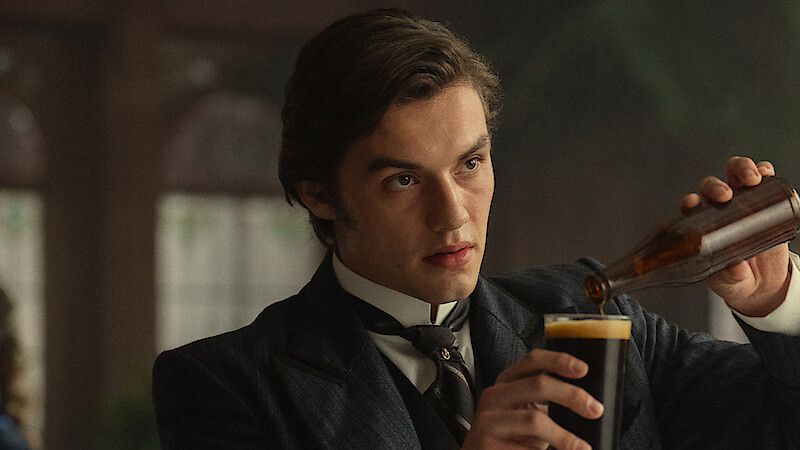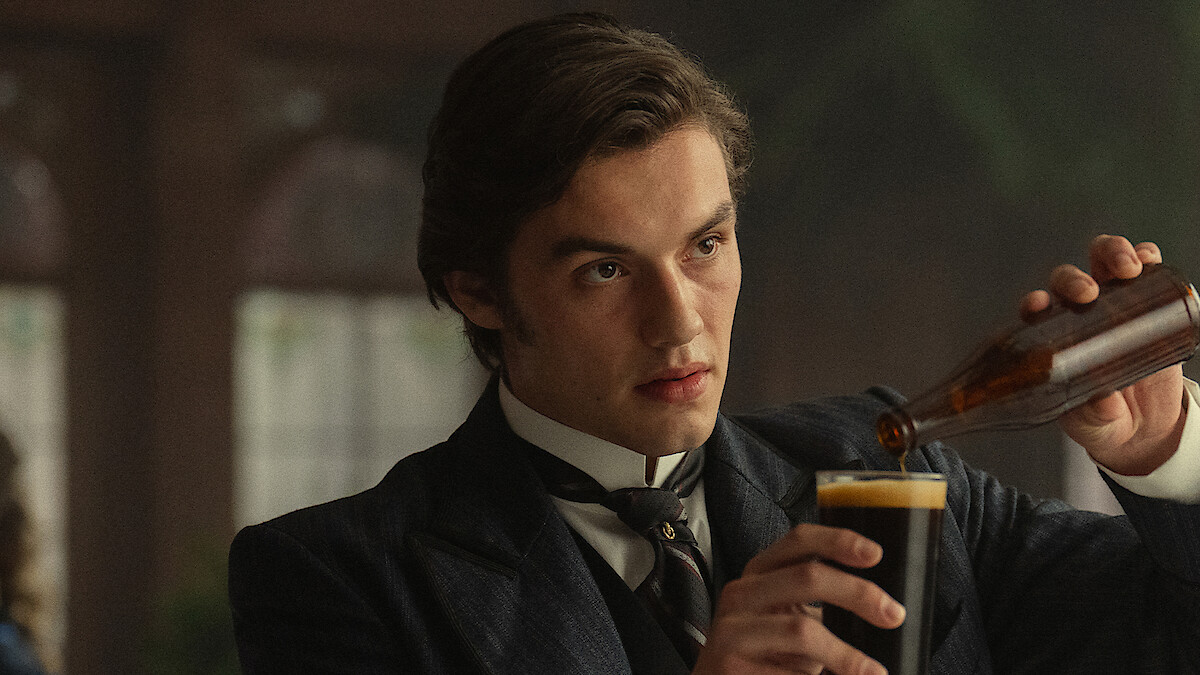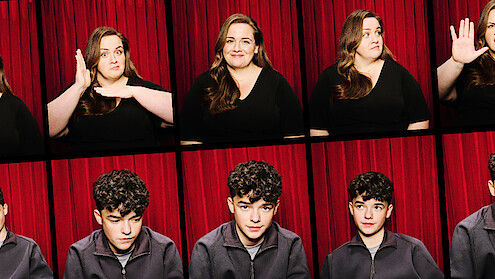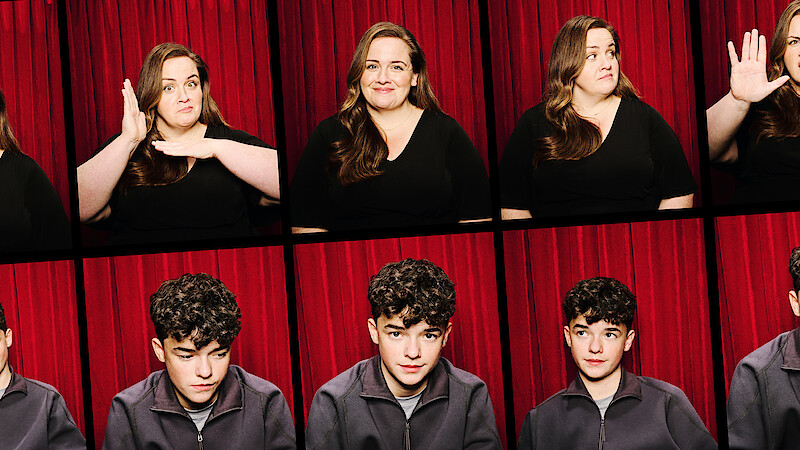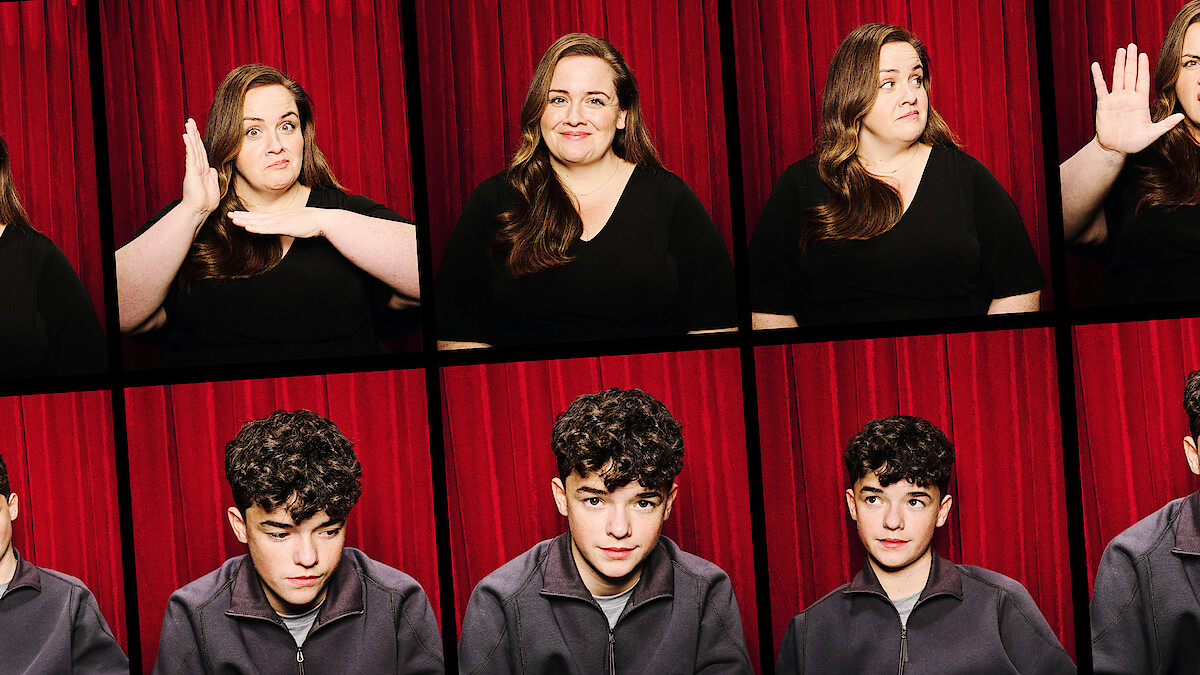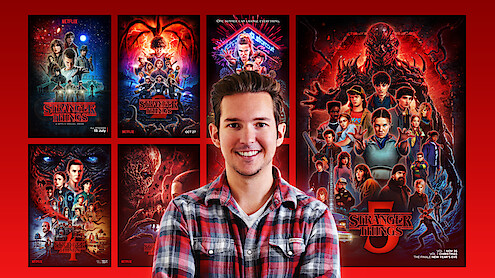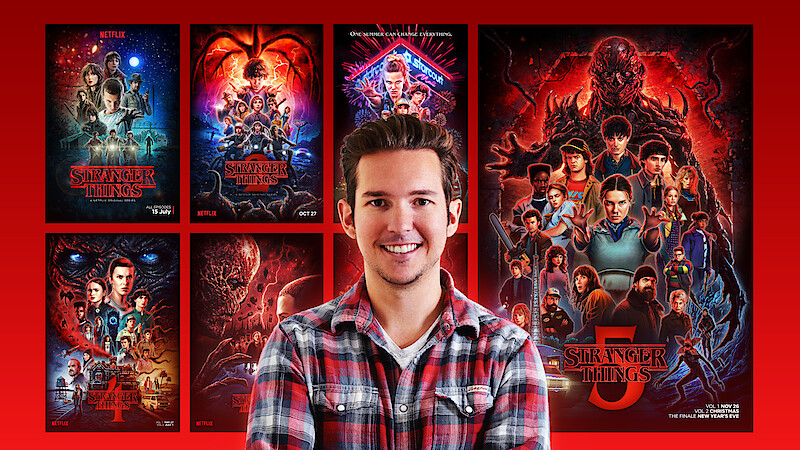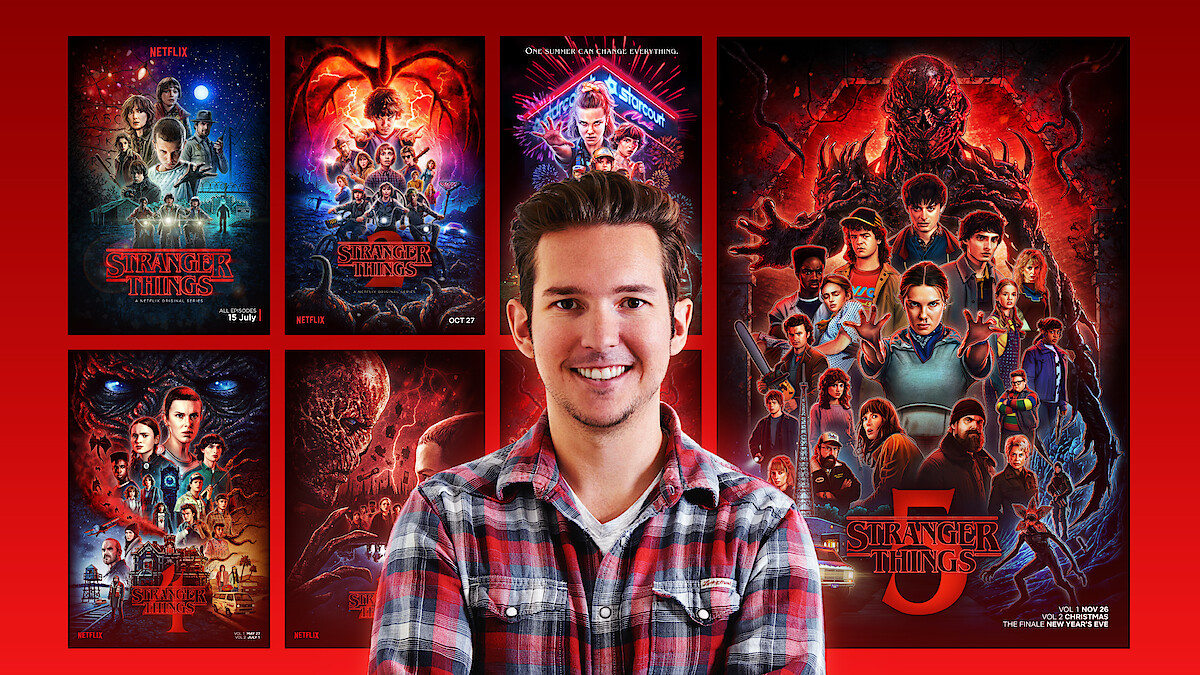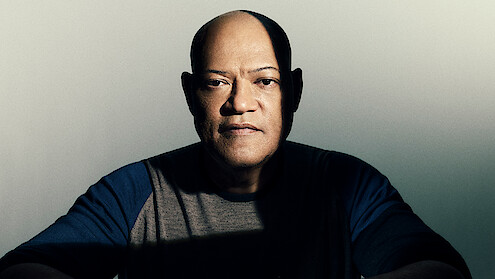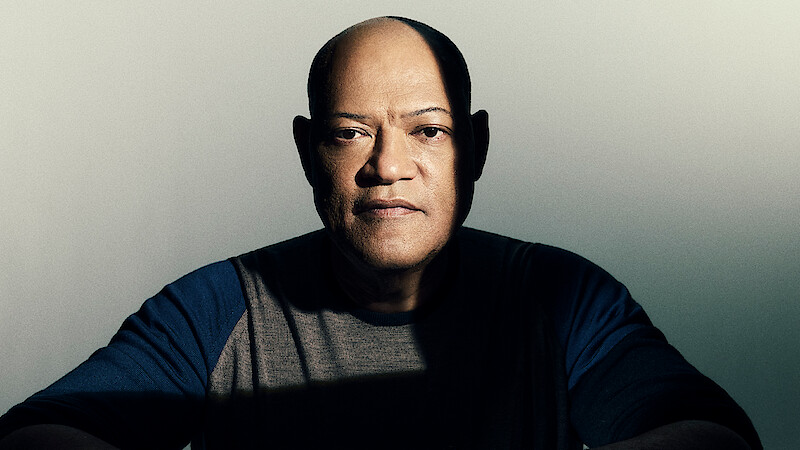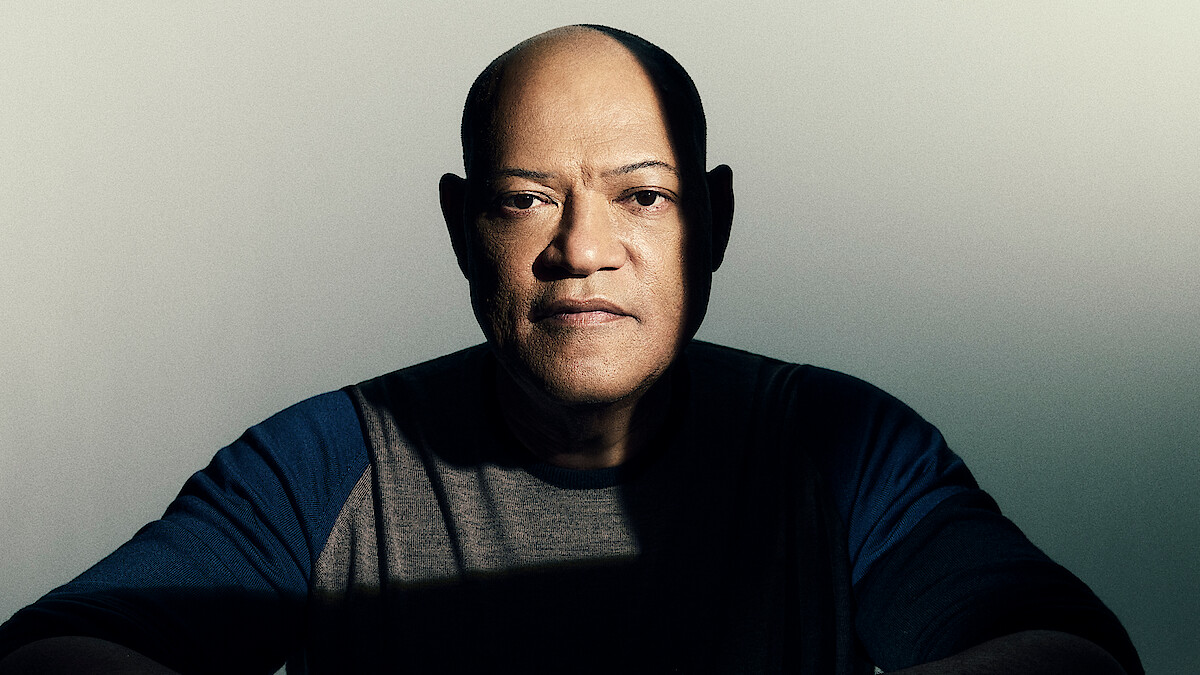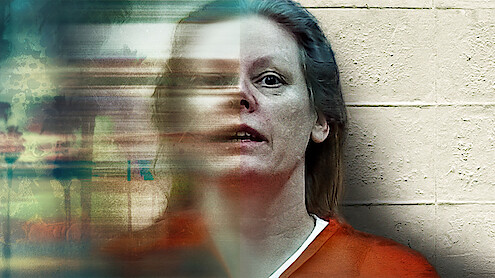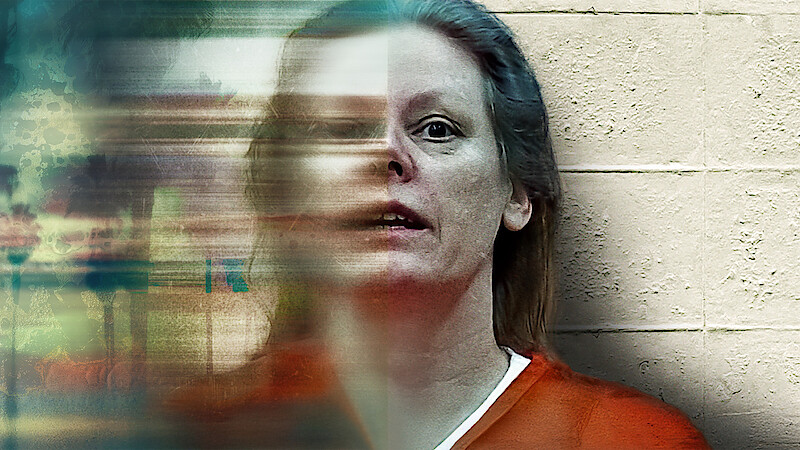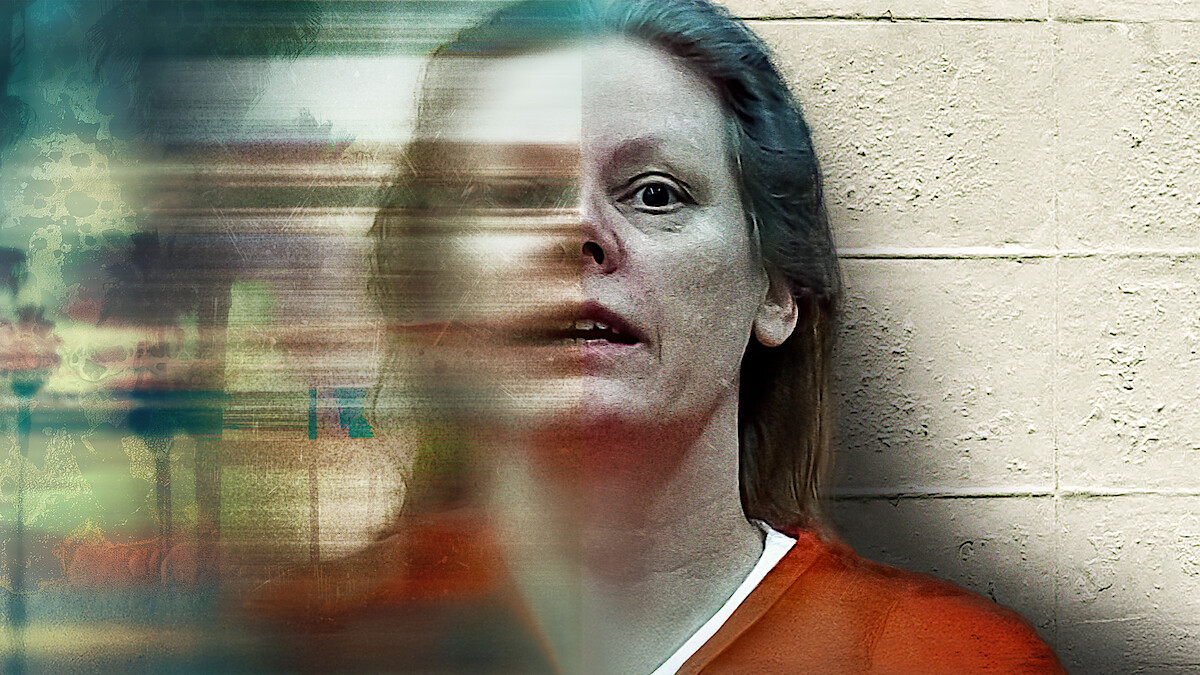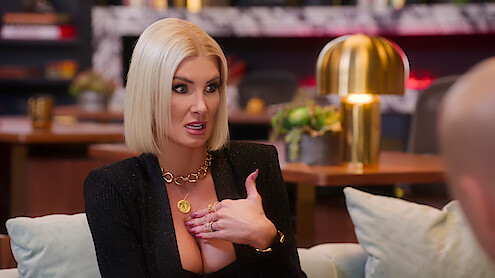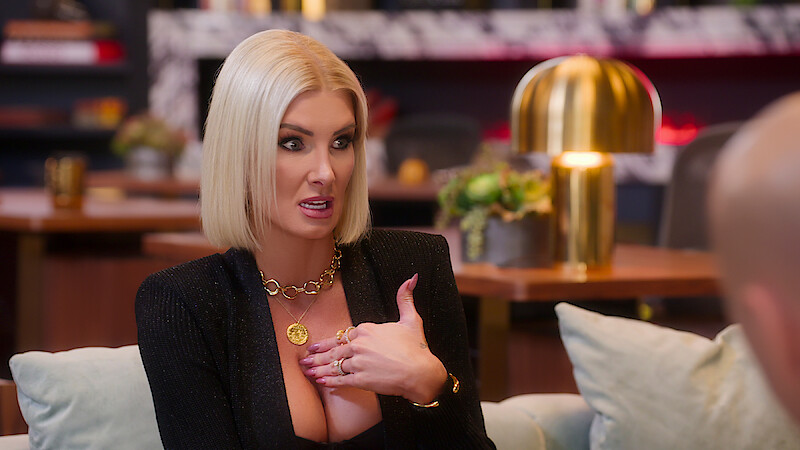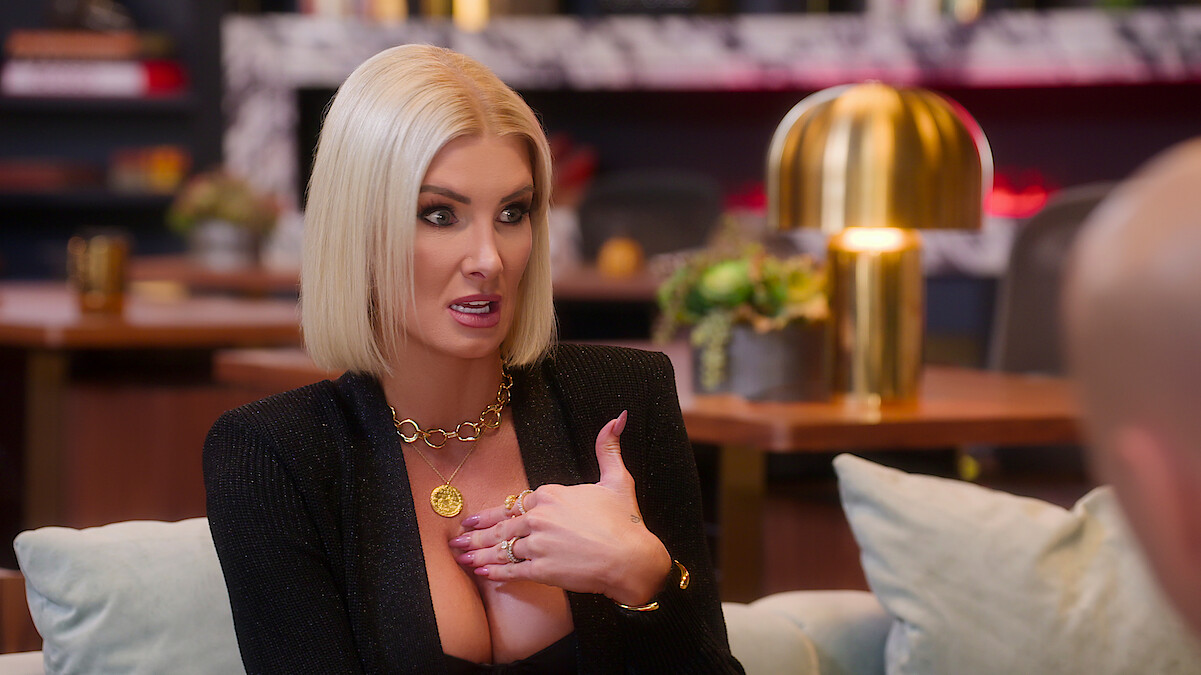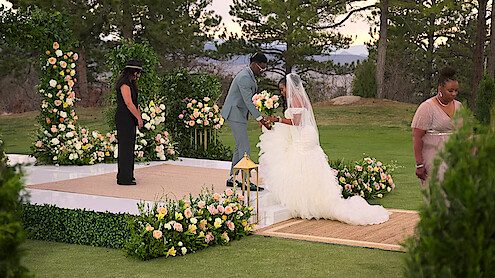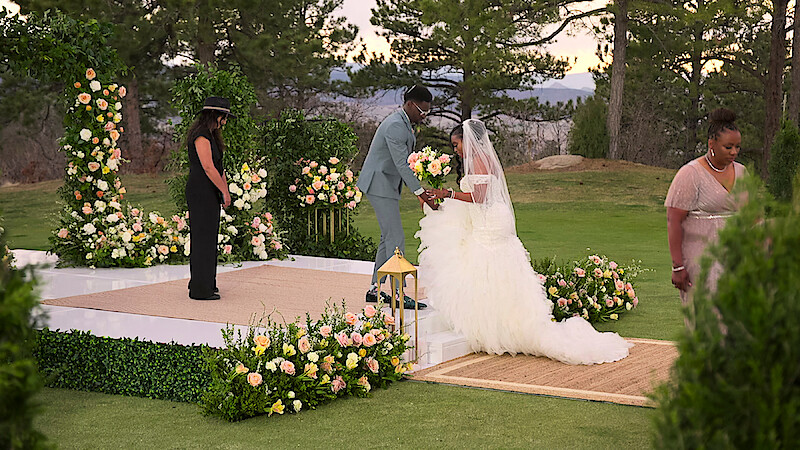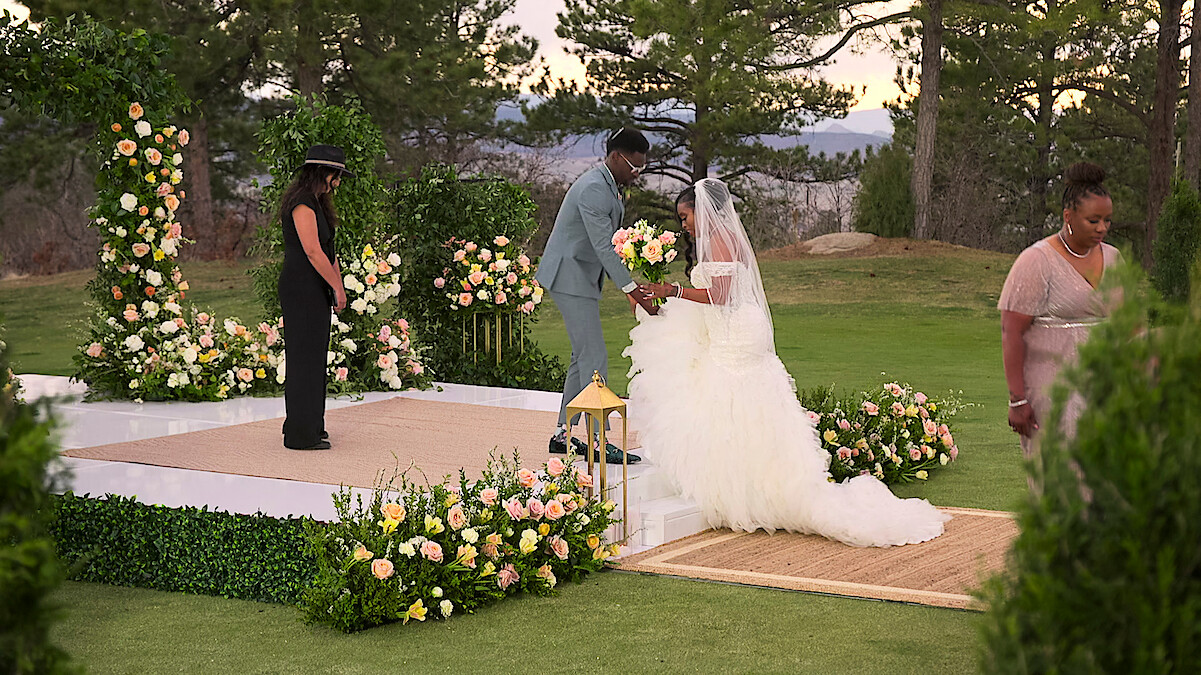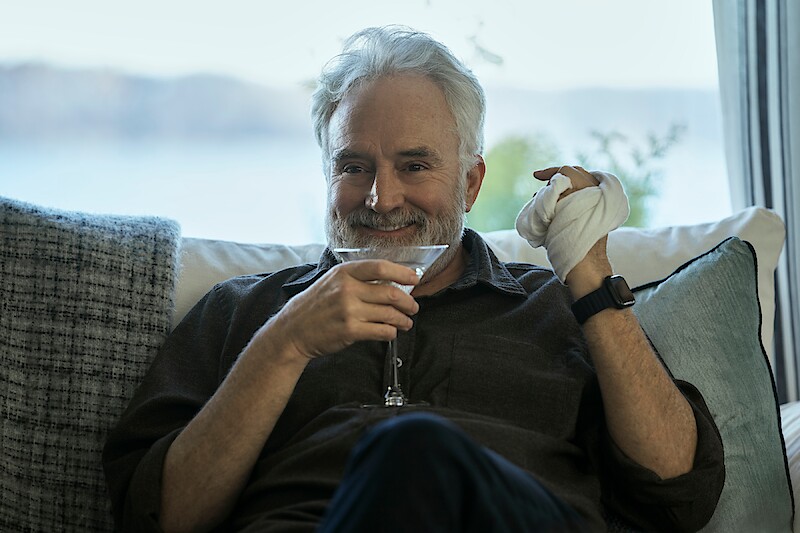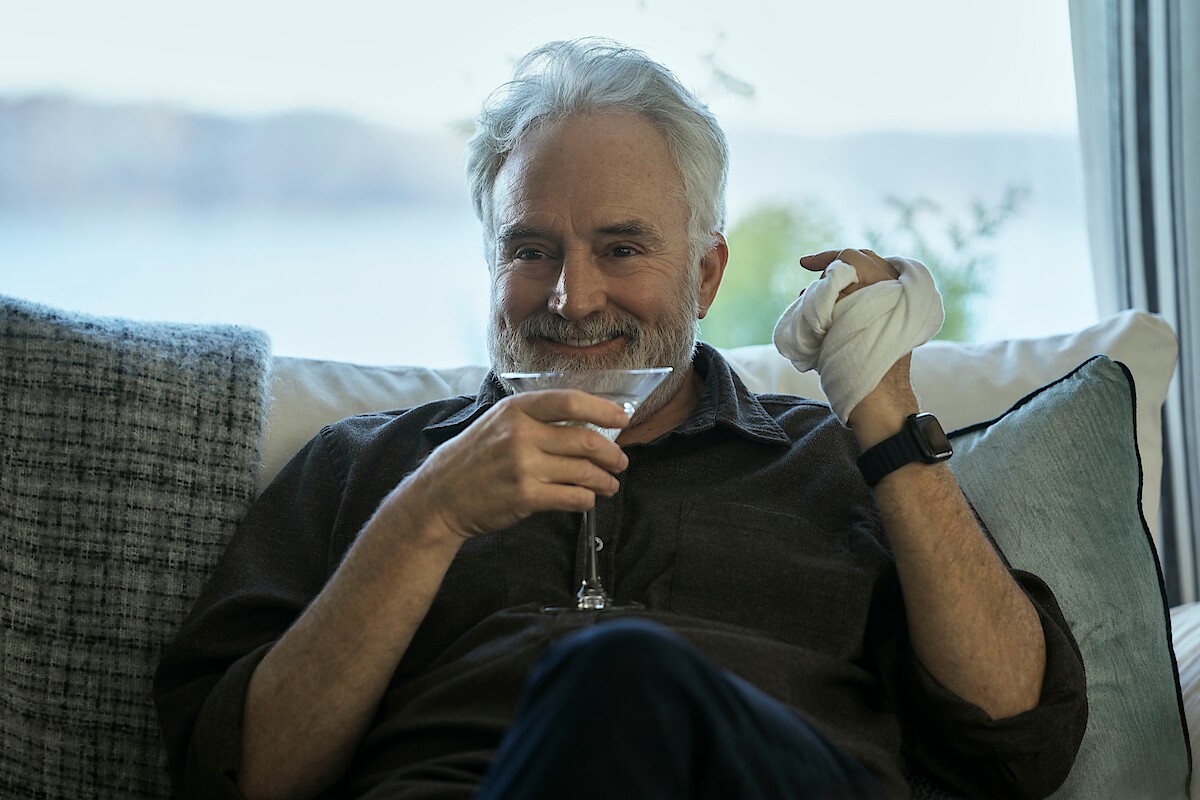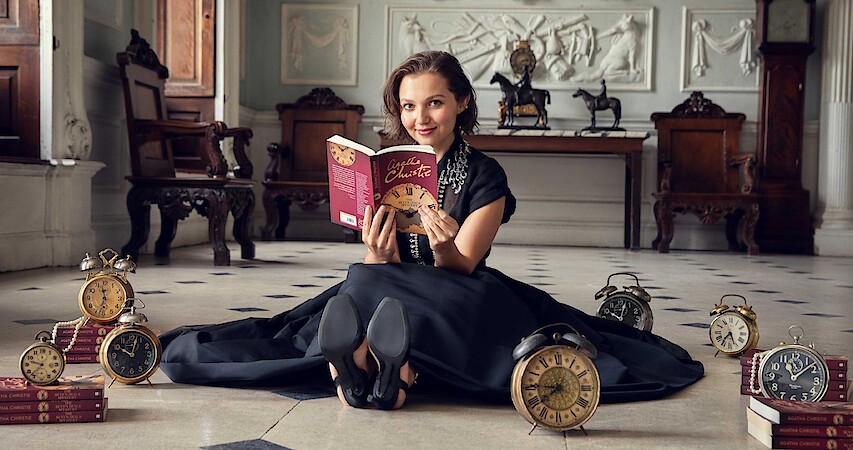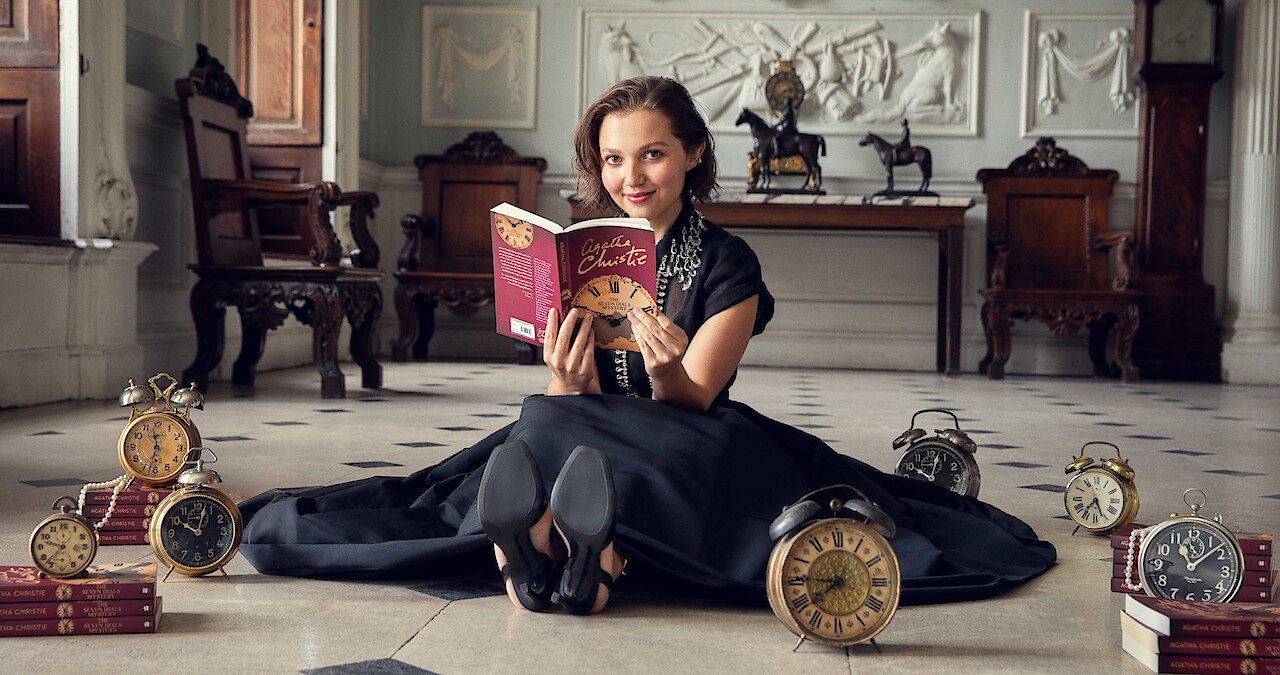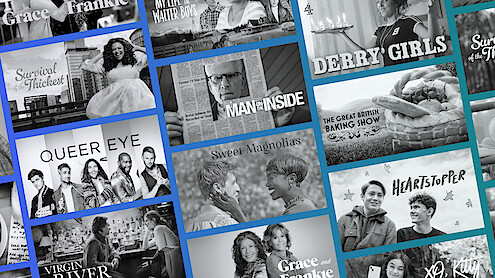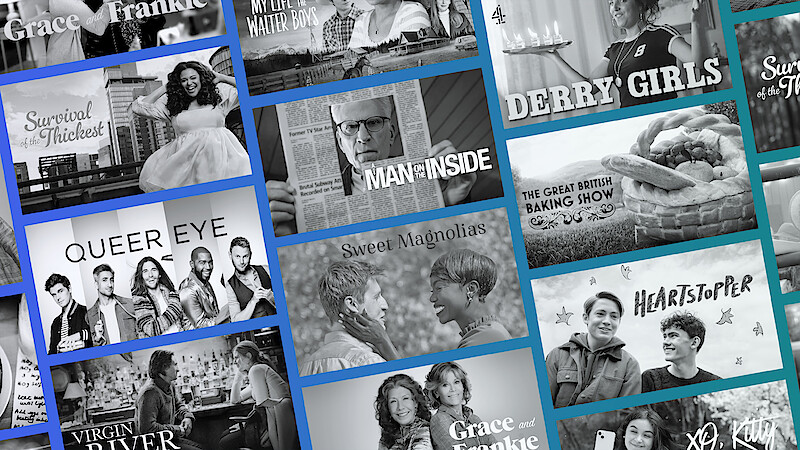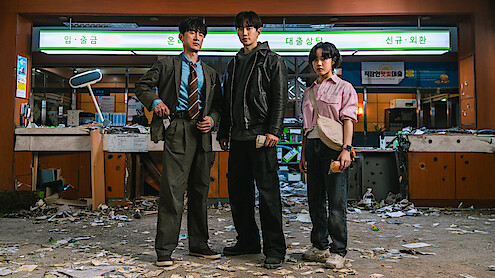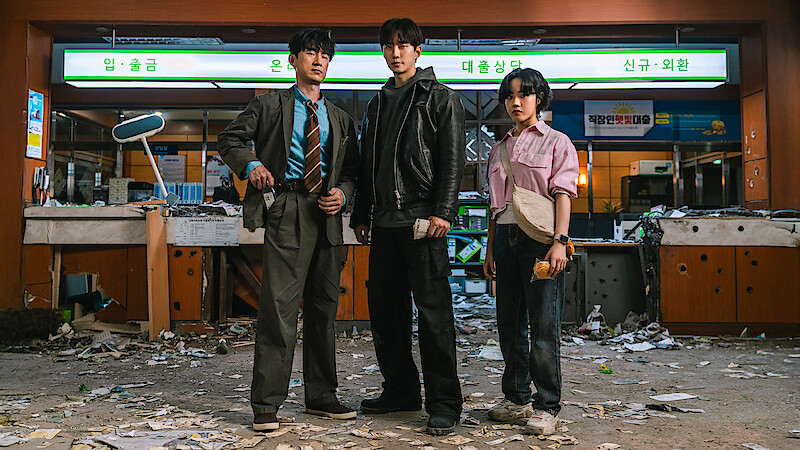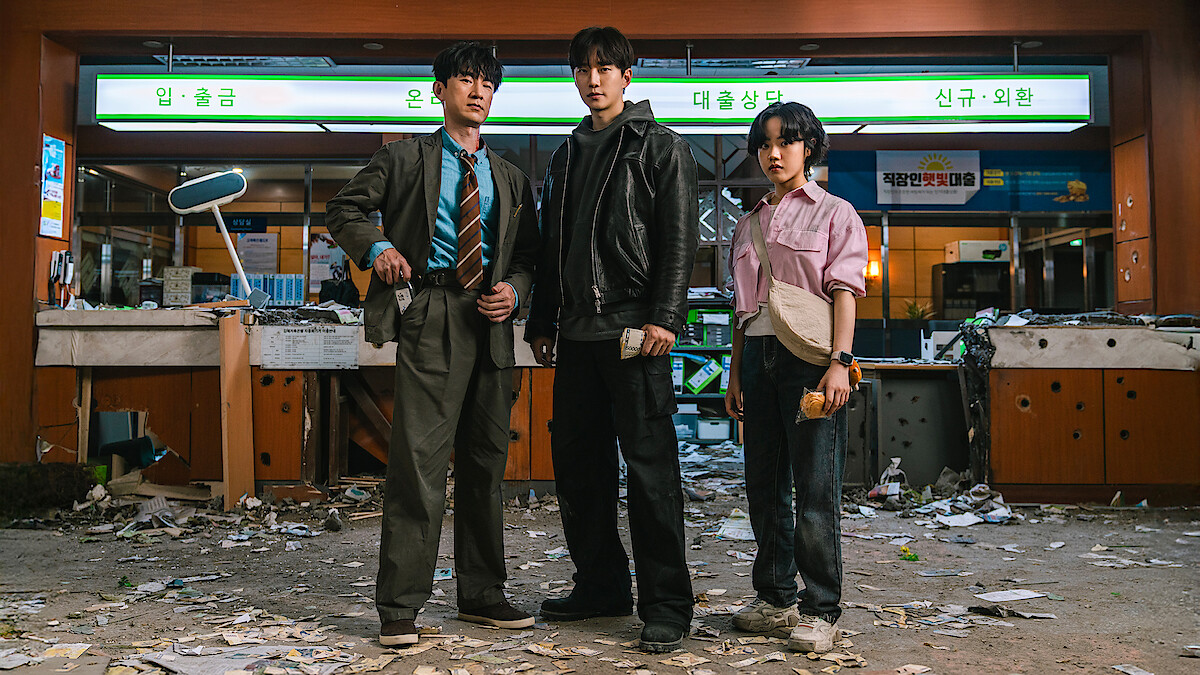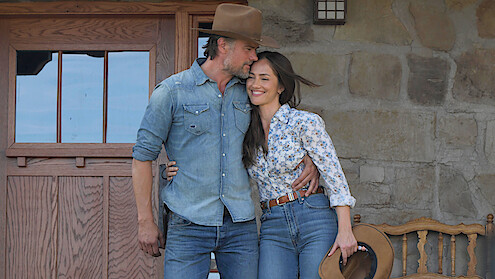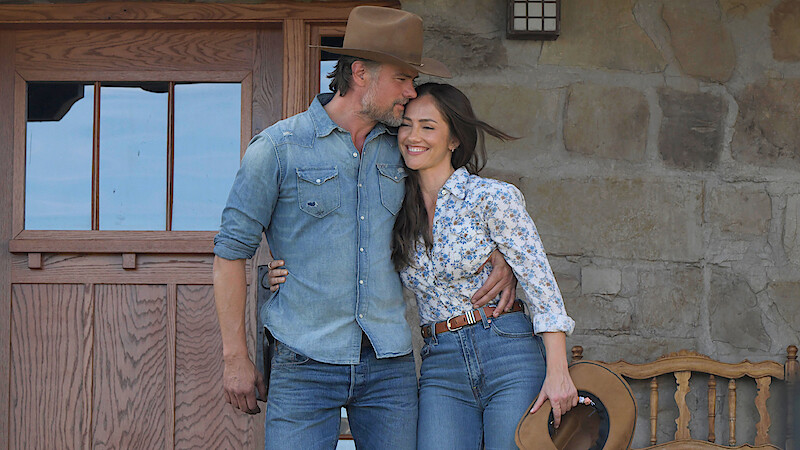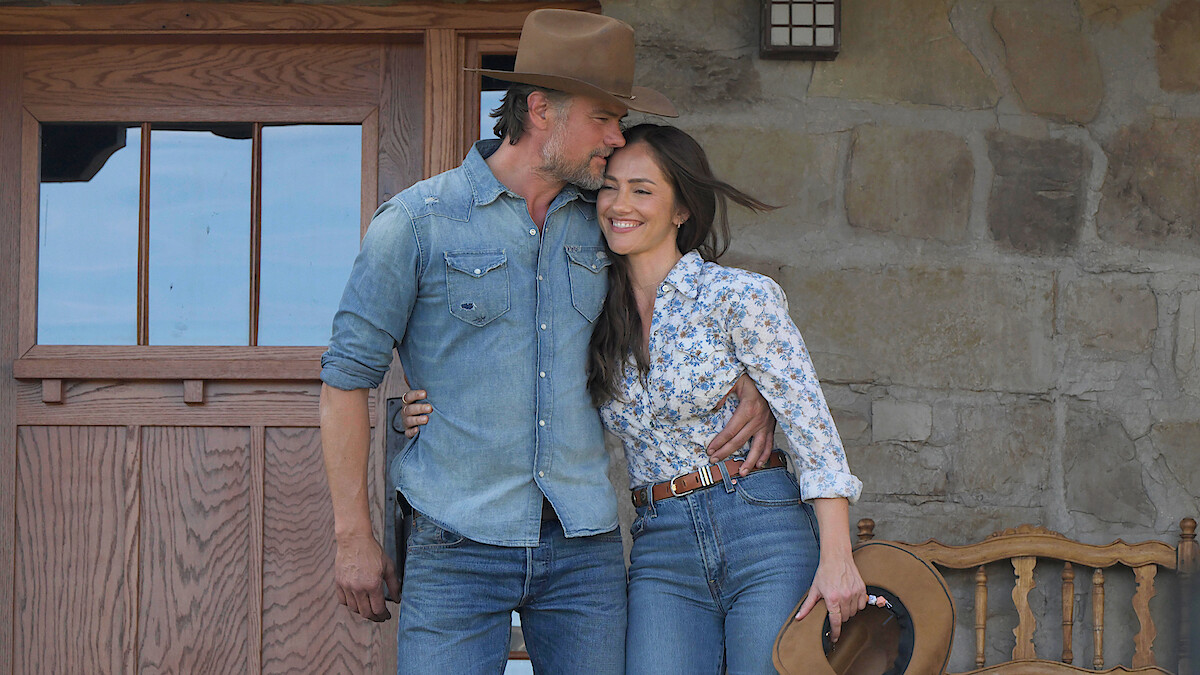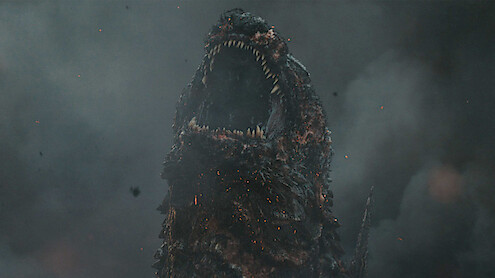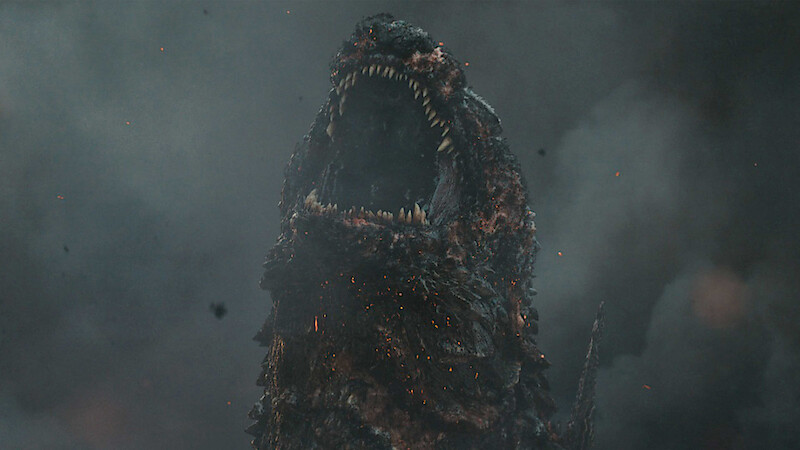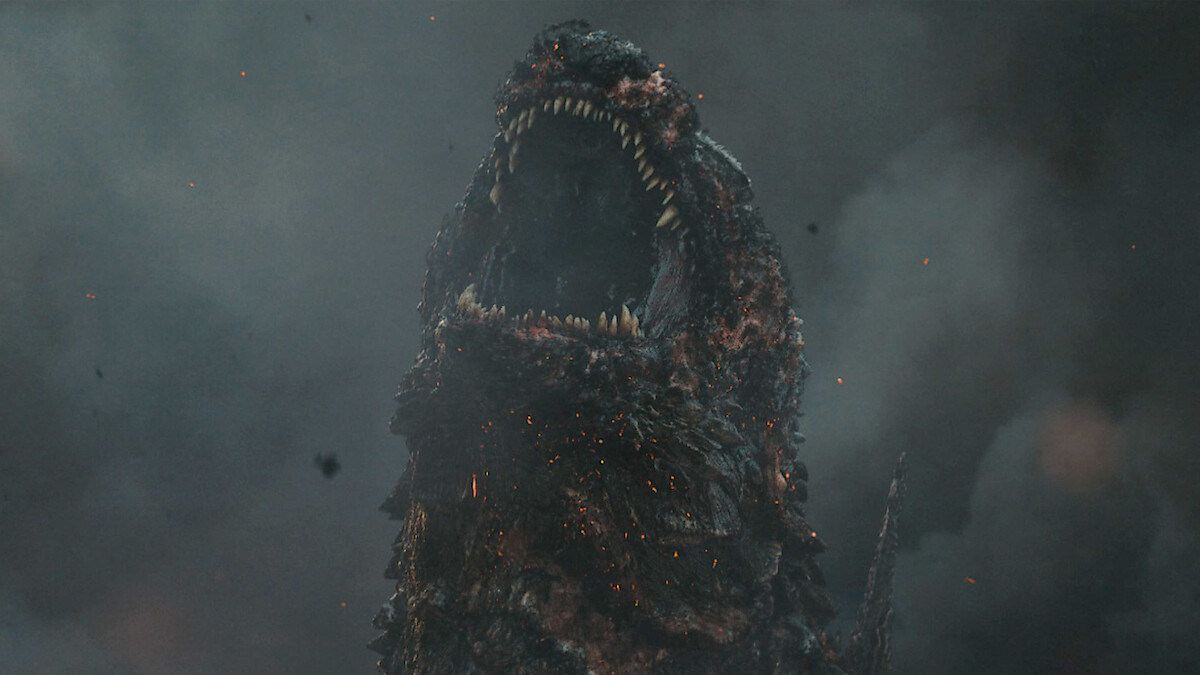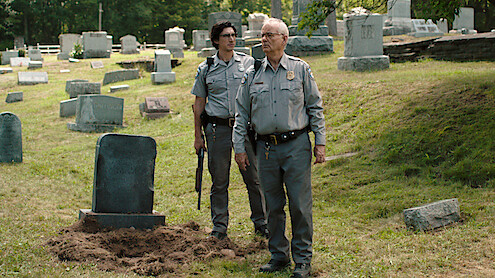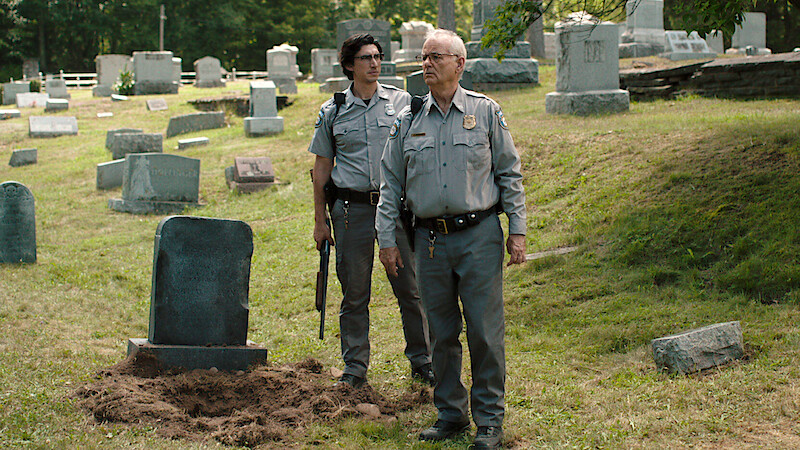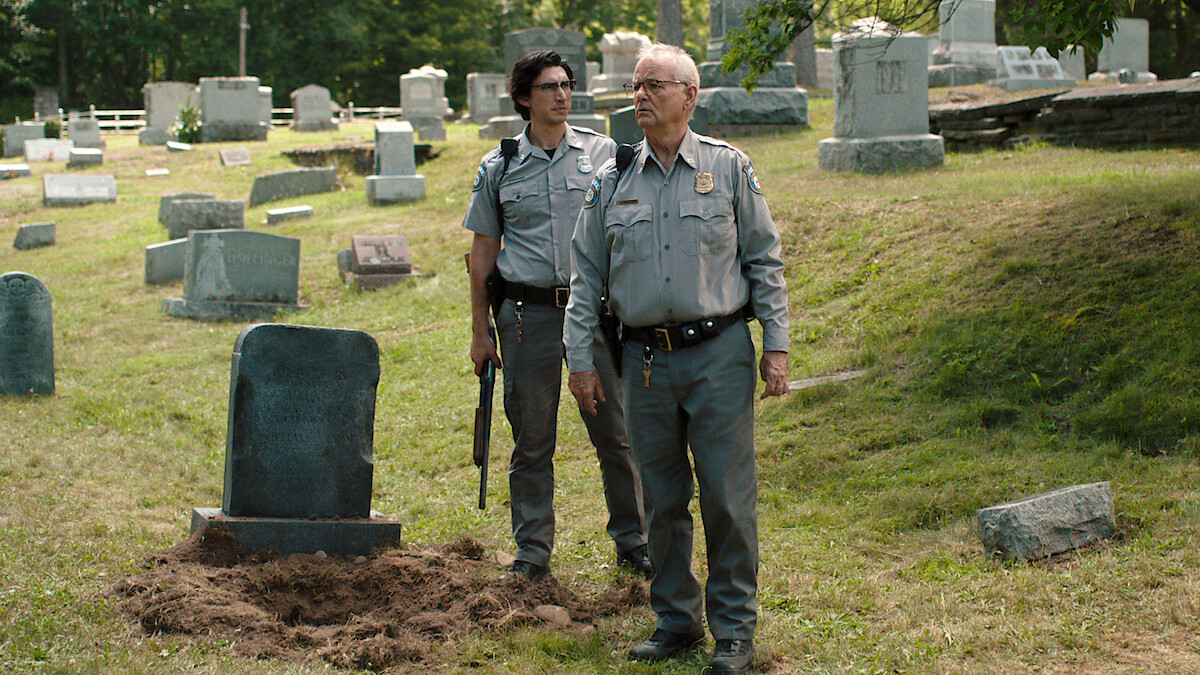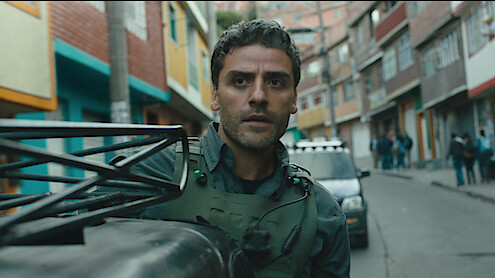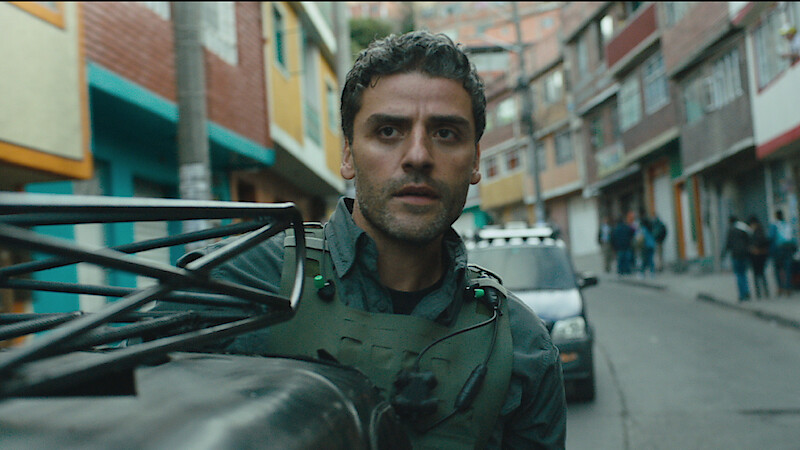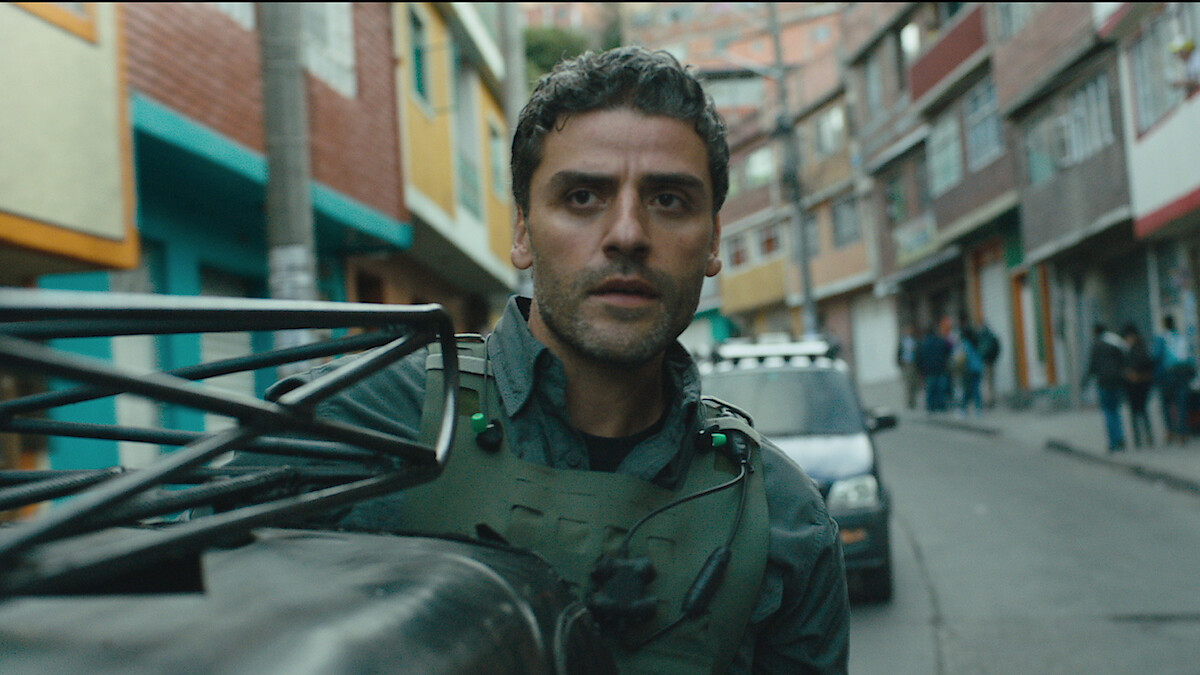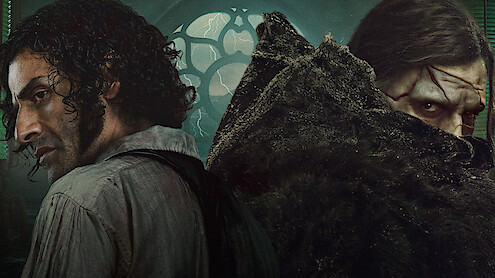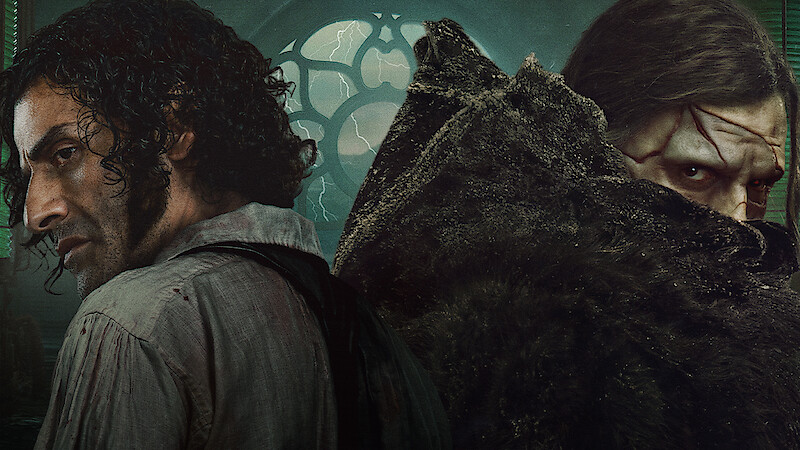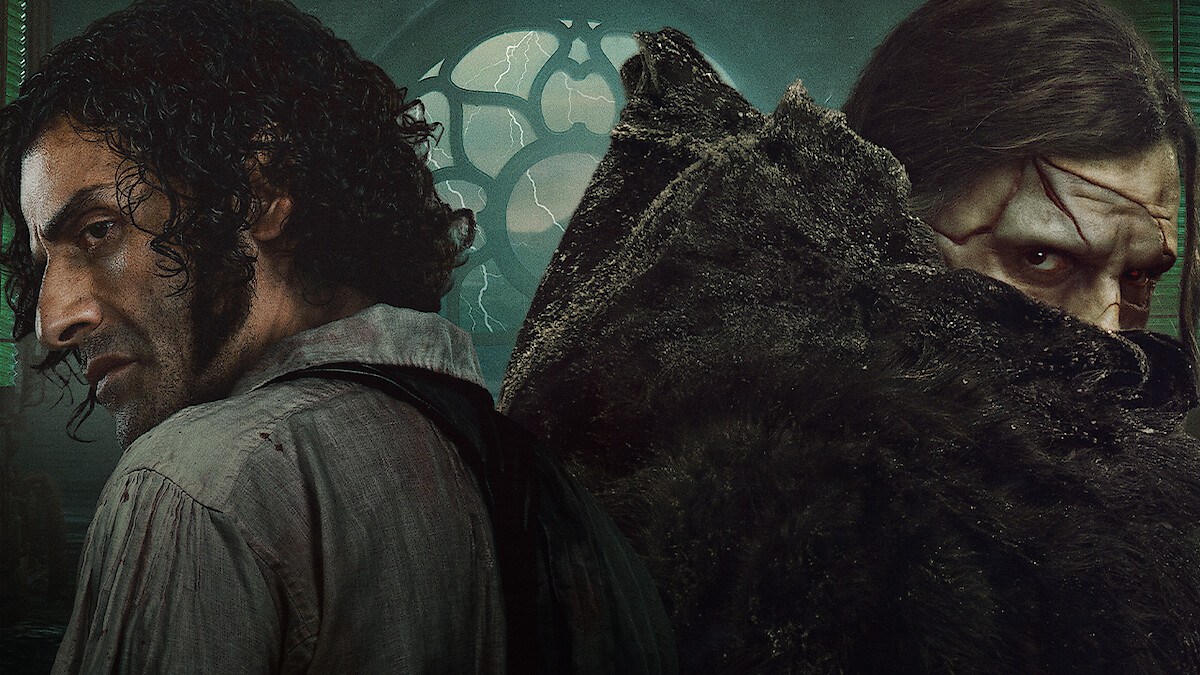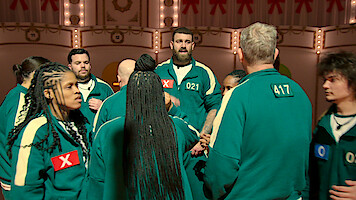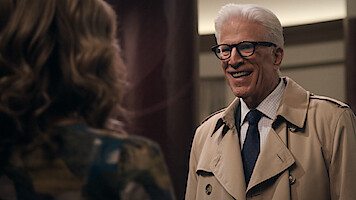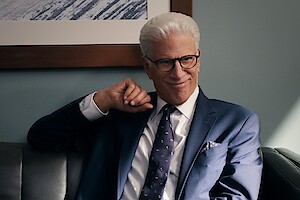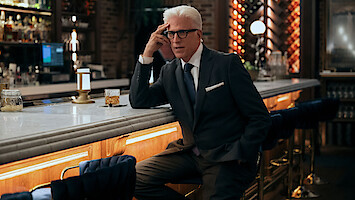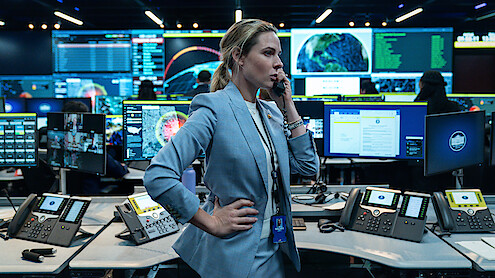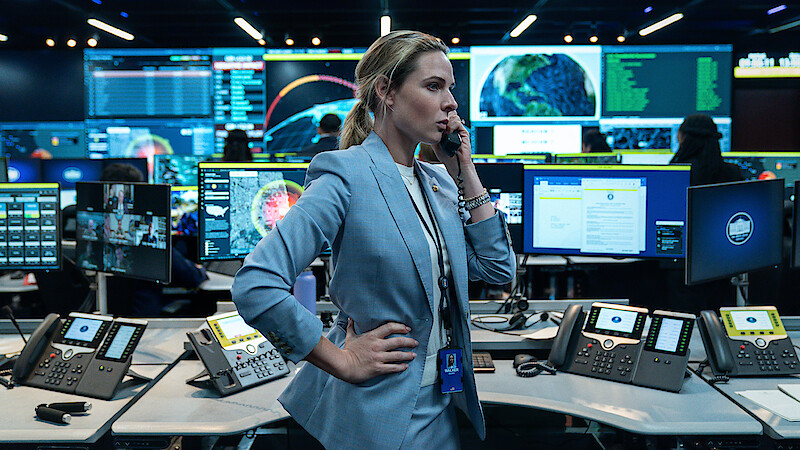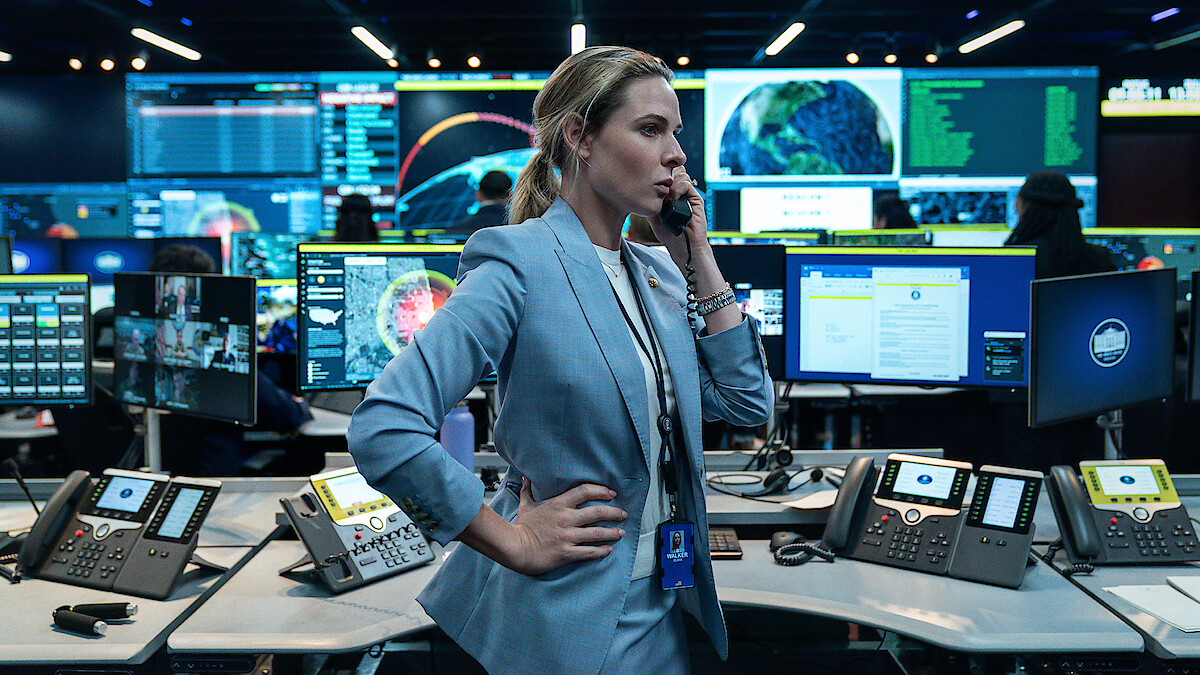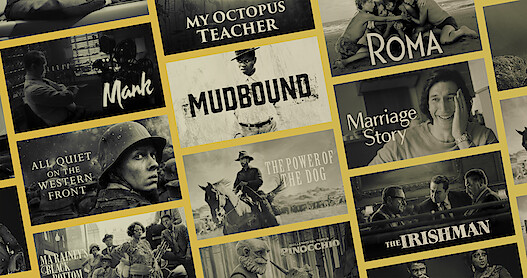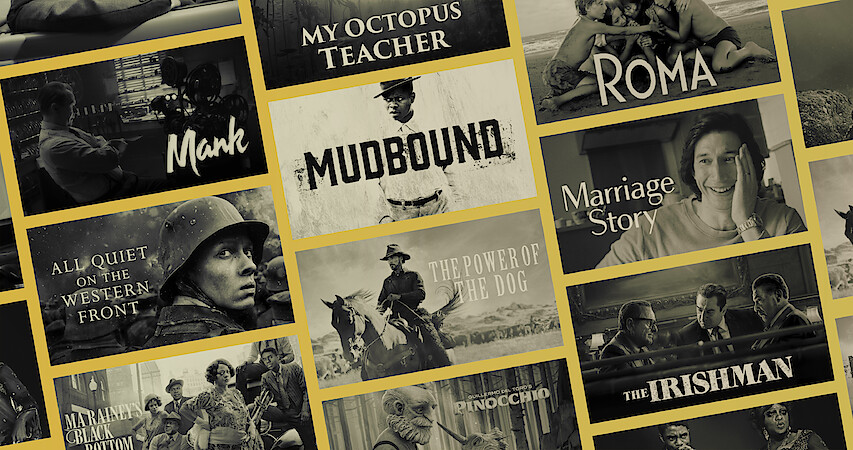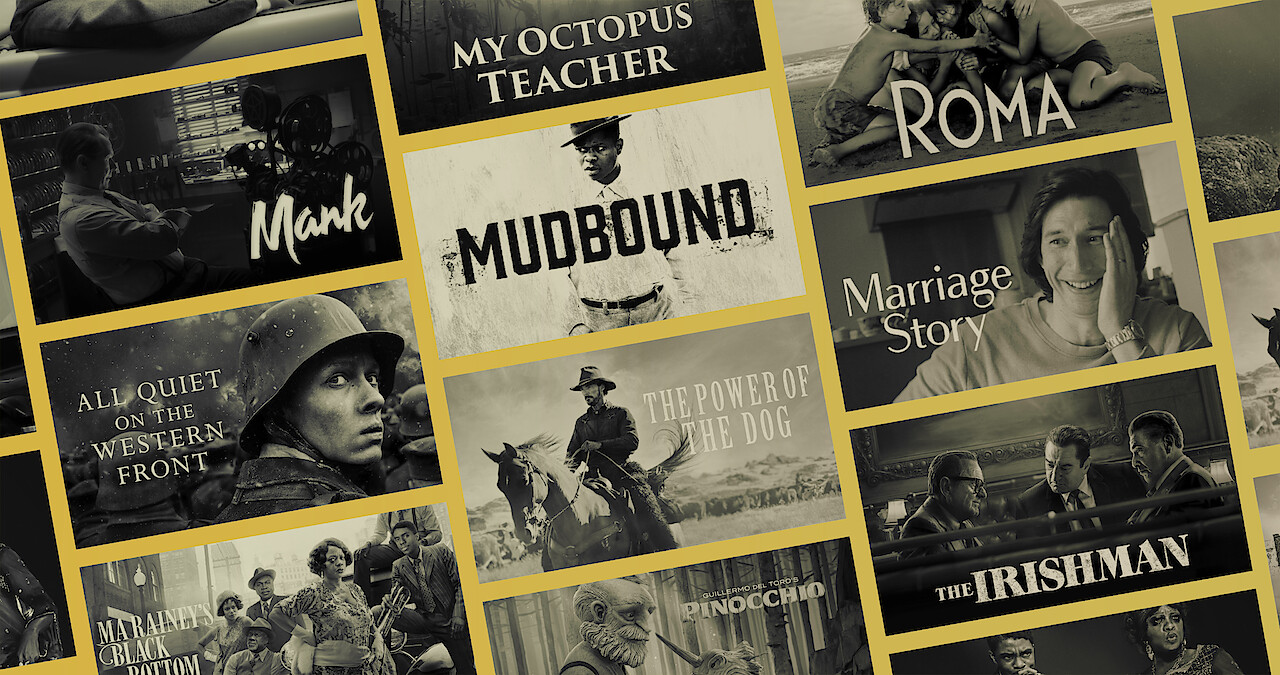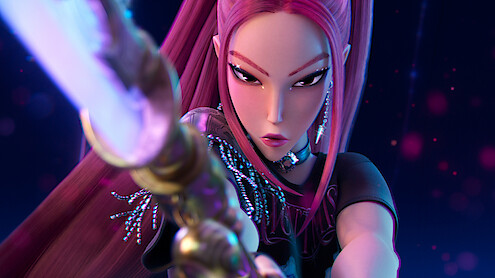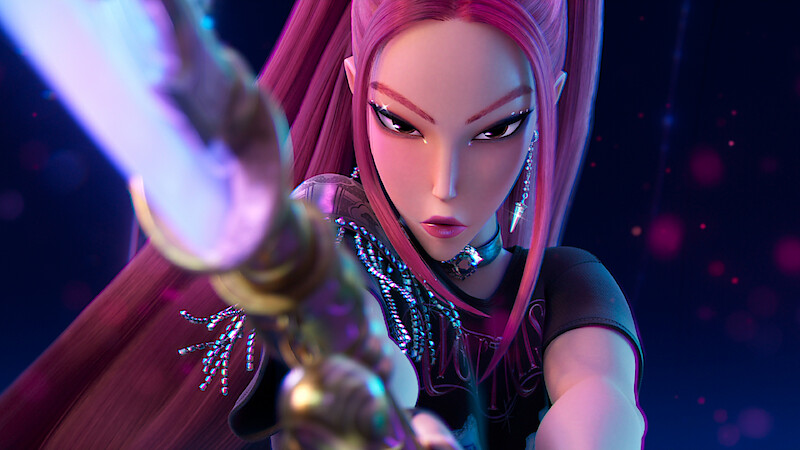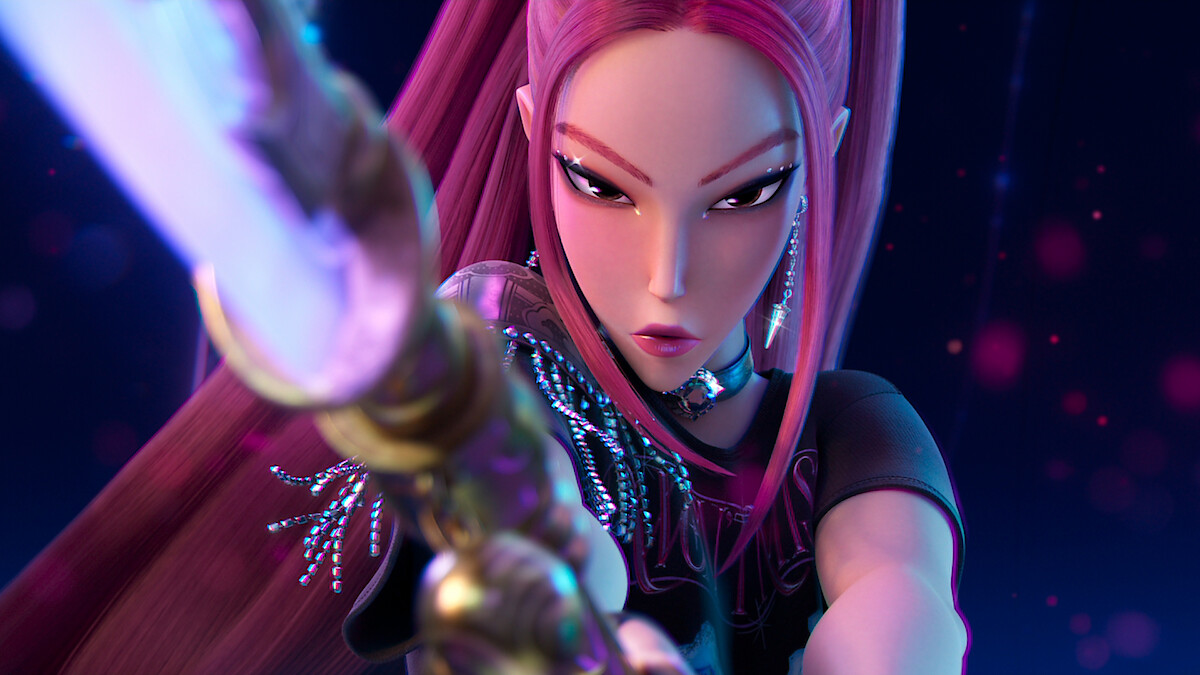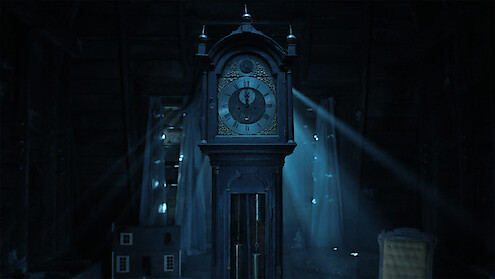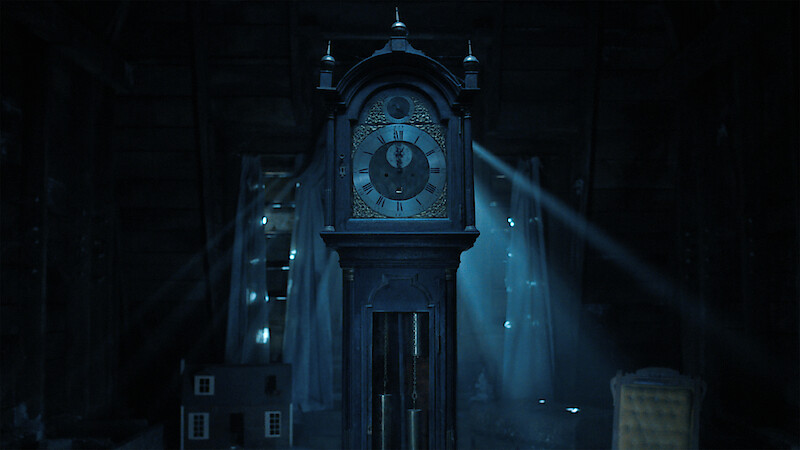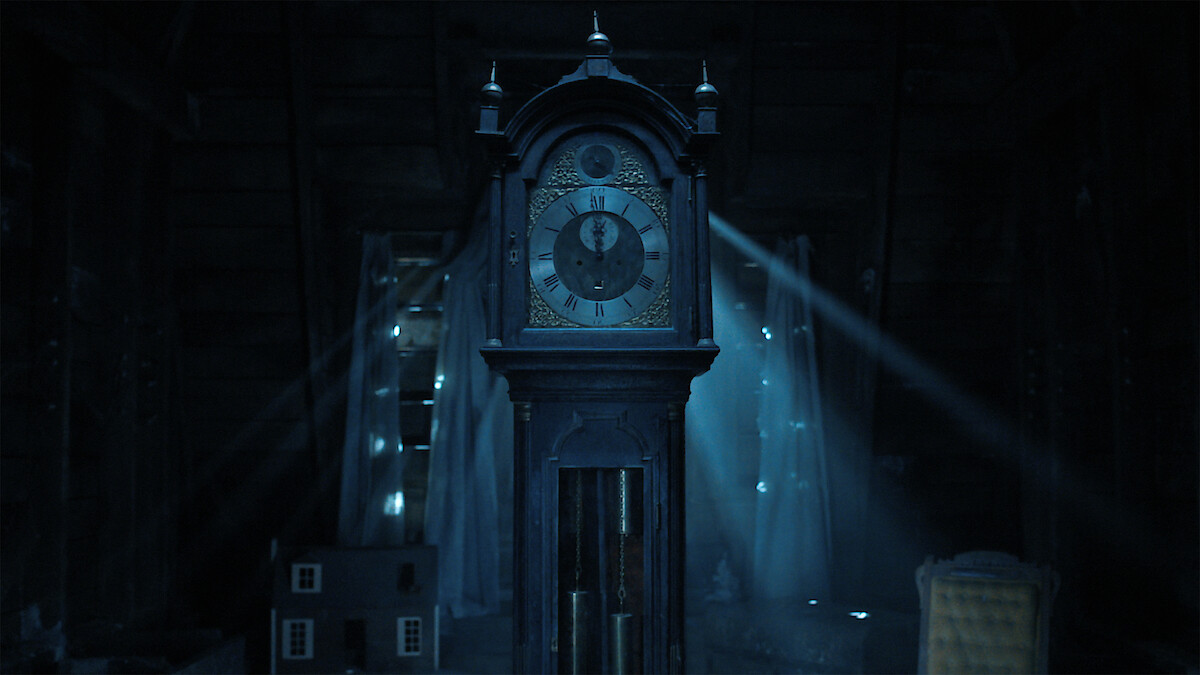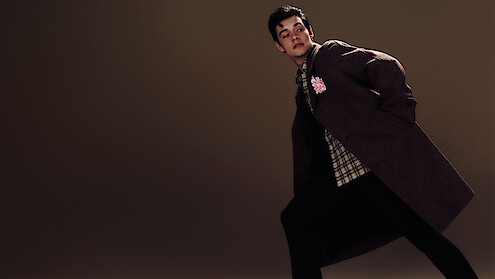
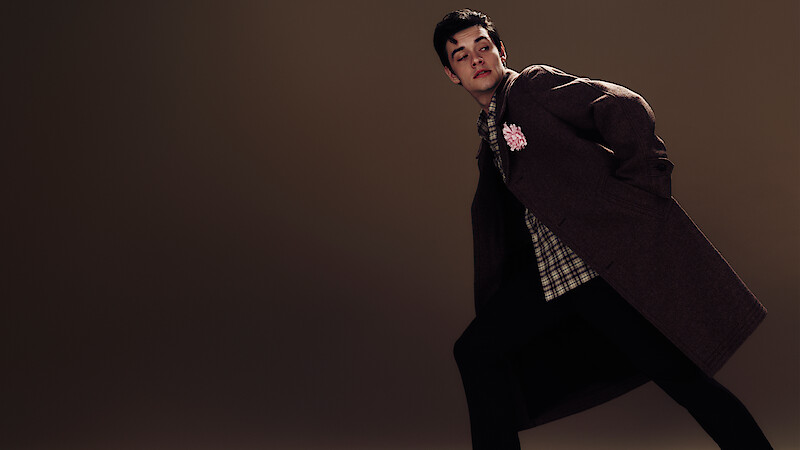
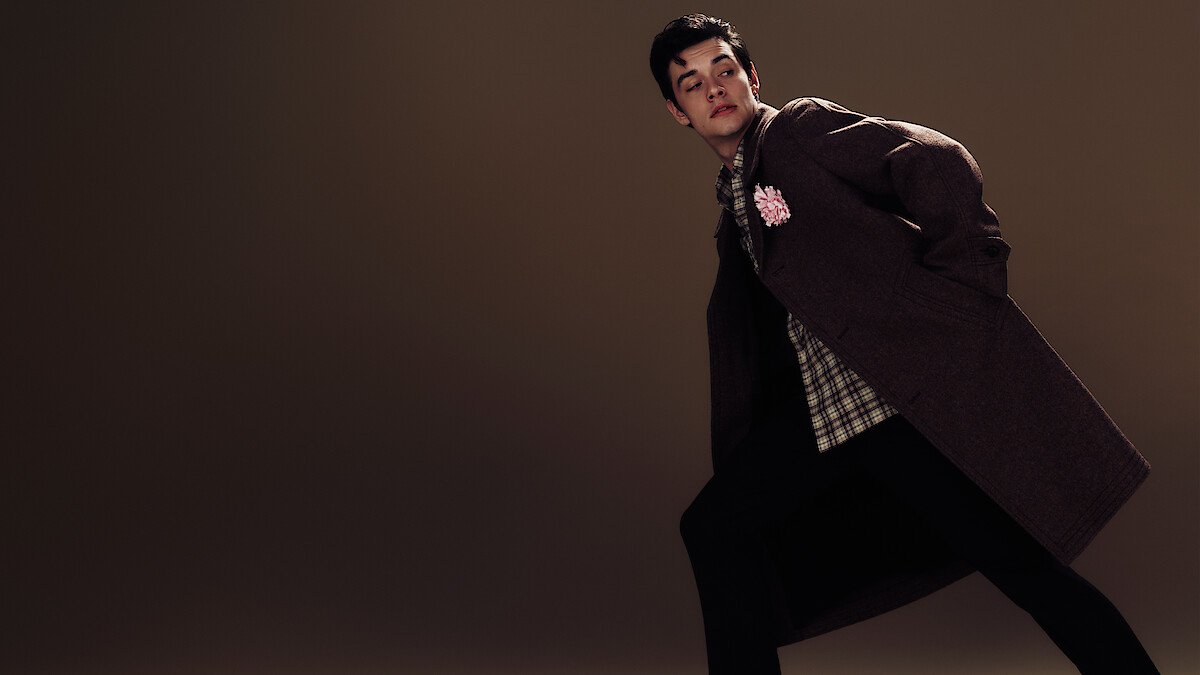



Louis Partridge never assumed he would end up standing in the middle of a grave, digging, on a set in Manchester, England. He certainly didn’t expect that outcome when he initially saw an Instagram post announcing that Oscar-nominated Peaky Blinders creator Steven Knight was set to create House of Guinness, a 1800s historical drama about the titular Irish beer scions. And yet, that’s exactly where the Enola Holmes star found himself one fall day in 2024.
“It was wet, it was muddy. My feet were cold, I remember,” Partridge recalls fondly from London. “But you’ve got to do it.”
Partridge’s House of Guinness character, the business-minded third son, Edward Guinness, applies that can-do attitude to all of his enterprises. While Edward’s oldest brother Arthur (Anthony Boyle) revels in the excess that lavish wealth can provide, the principled and fastidious Edward is more focused on maintaining (or growing) the family fortune that affords such luxury. Hence his trip inside of a dirty grave. Edward only steps inside the slop to prove his determination and, ultimately, fulfill the family duties that come with his lofty surname.
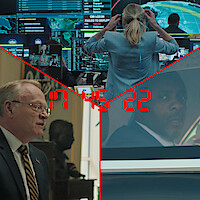
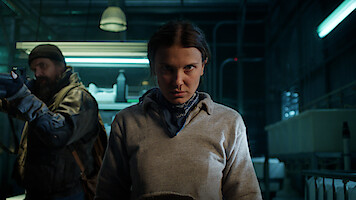
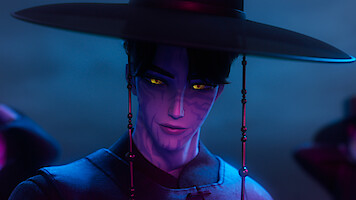
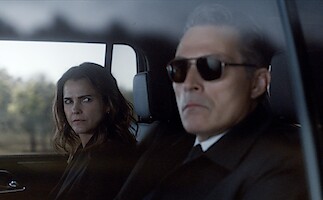
“I like that Edward really knows what he thinks and he’s assertive. He can be strong when he needs to be, he’s confident,” Partridge says. The actor was immediately drawn to the role — so much so that he went to great lengths to film his self-tape audition. He had a friend record a voice memo reading the other character, then perfectly timed his responses as Edward.
Just like Edward, all of Partridge’s tireless efforts paid off. Soon enough, he was in a second audition with House of Guinness director Tom Shankland — and, eventually, in the middle of the series’ gilded mansion as Edward. “Having that as your home was really nice,” he says. “You got to feel like you weren’t just passing through, you were in the story.”
Now Partridge is ready to venture inside the frothy tale that is House of Guinness — from sibling rivalries to his “hot fish” of a character.
An edited version of the conversation follows.
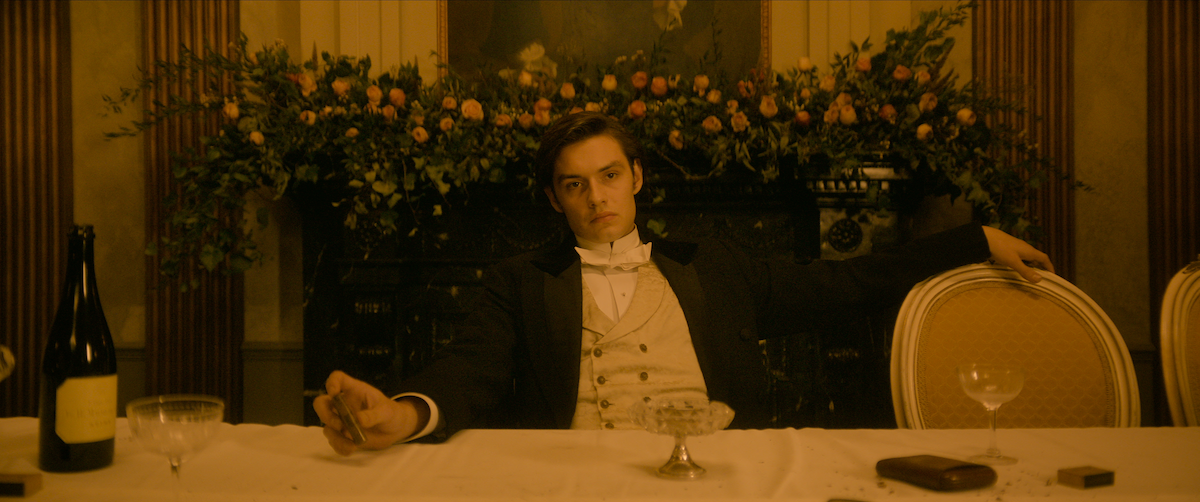
Do you actually drink Guinness?
Louis Partridge: I’m a massive fan of Guinness. I was in the pub drinking a pint of Guinness when my agent called me telling me I got the job. It was crazy.
Is that passion what first drew you to the project?
Partridge: It was Steven Knight, initially. His name leaped out to me on the page. Steven works really hard. He writes a lot and he has a good way of blending the real and the fantastical. The language reflects that — the way his characters speak. You might not always hear people in your life speaking like that, but it gives it an edge, which is just fun to watch and fun to play.
You are in another project this year by a celebrated writer and director: Noah Baumbach’s Jay Kelly.
Partridge: I actually had Noah Baumbach on a list of directors that I’ve always wanted to work with, which I wrote when I was about 14 after seeing Marriage Story. I remember the first scene we did: I was giving a Chekhov monologue in front of George Clooney and Adam Sandler and Noah Baumbach. It was brilliant.
With Edward in House of Guinness, you are playing a young Irishman. How did you prepare for the character? He’s very proud to be Irish — and that includes his accent.
Partridge: I think my accent for the audition was — to be honest — pretty bad. But once I got the job, I hired an expert [dialect coach]. Sometimes it takes a minute to learn an accent — to feel like it’s in you. But this one, I learned really, really quickly. Even just a couple of minutes talking in Edward’s accent brings about certain behaviors, movements, and even facial expressions for me.
I enjoyed learning about different types of Irish accents and I was like, “OK, so that’s your Colin Farrell. Oh, that was Andrew Scott. OK. That’s more like Paul Mescal.” It’s quite interesting finding out how to place these accents that you’ve heard, because I just think it’s a great-sounding accent.
Did you dig into the history of the real-life Guinness family?
Partridge: I did quite a bit of reading about the family and my character, what he went on to do. I went to the Guinness Storehouse in Dublin, which is the original site of the brewery, St. James’s Gate. I had a good tour.
On the tour, they take you through every little stage of the brewery making and all these amazing facts. Like the beer has to be brewed at exactly 232 degrees. That’s the optimum temperature for burning the barley so it doesn’t go too crispy, but it gets the right level of brown to release the flavor. It’s all these technical things.
The exact temperature of Guinness brewing is a very Edward fact to know.
Partridge: His brain is very logical.
Edward’s siblings, on the other hand, aren’t logical all of the time. How did you find your sibling dynamic with your co-stars?
We didn’t have a chemistry read. But we were all away from home during production. We were staying in the same place and we were each other’s company all the time. We went out and drank Guinness and went for dinners and hung out.
I think after a few rehearsals, the seeds of our onscreen relationship popped up. We found our niches. The characters are well written enough that you’re all distinct from each other. We each had separate goals. So when you get the scene up on its feet and everyone is playing it, everything fits together.
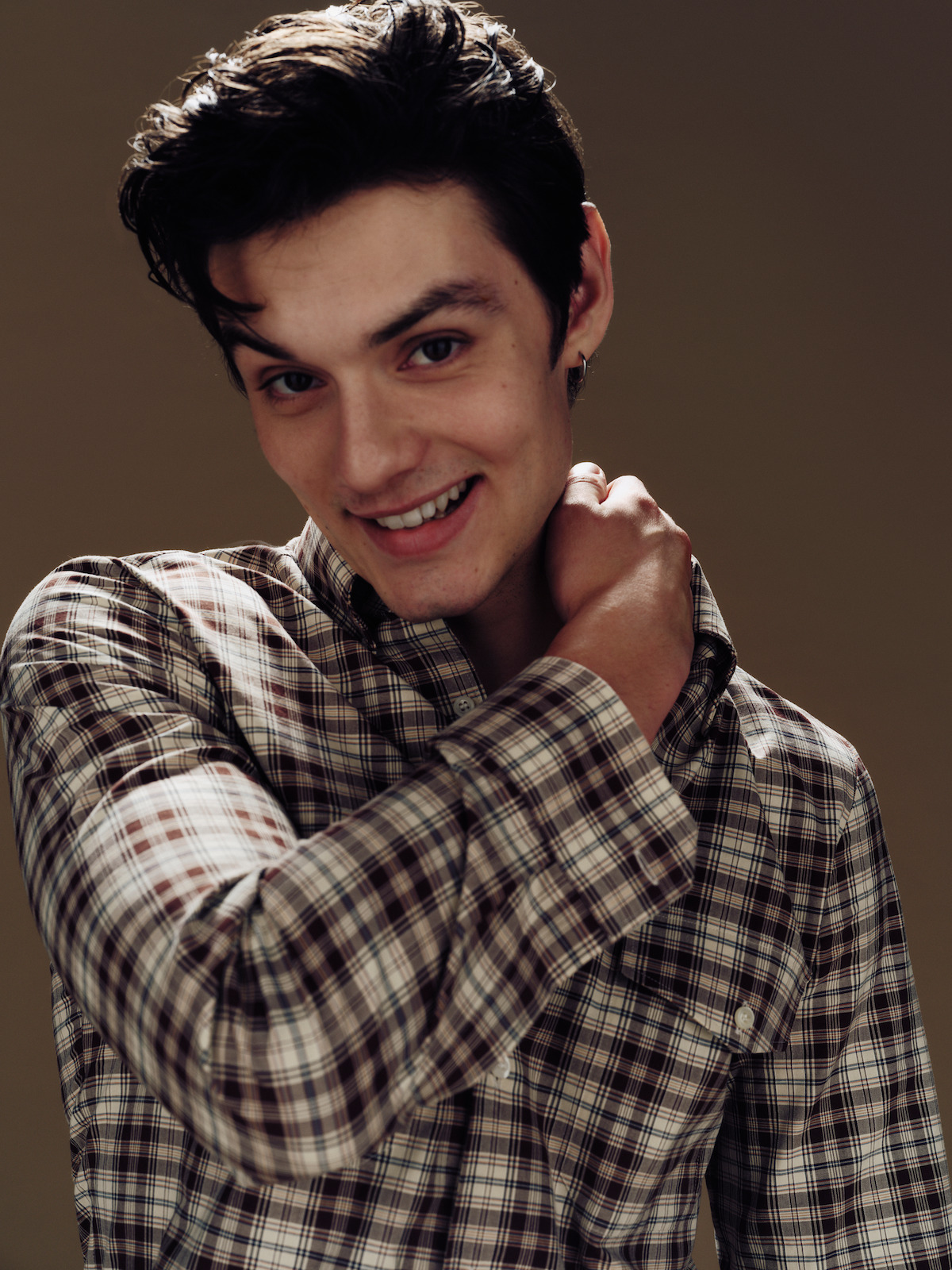
You can see that from the very first scene together, after their father’s death.
Partridge: That introductory scene is quite a special one. They all contradict each other. It gets to the heart of each of the characters and lays out their relationships really beautifully.
Edward is the “responsible” brother, but he also has his fair share of obstacles and indulgences. How did you manage all his spinning plates?
Partridge: I think that his progression was challenging and interesting at the same time. He realizes there might be more to life than just being the hardest working guy. That was all really interesting: trying to get that across in performance while not losing any of the Edward-ness. He needs to be varied and interesting, but also quite specific.
So I trusted the directors and said, “Tell me if this is too serious, too severe. If I need to be a bit more playful here.” I set a sliding scale with a few things — how fastidious is he here? And is that now moving into maybe being a bit more sloppy and a bit careless there? In each scene, I was trying to pinpoint where Edward was at, while not making him seem robotic.
At a certain point, Edward self-deprecatingly calls himself a “cold fish.” But is that true?
Partridge: I don’t think he’s a cold fish. I think he’s a hot fish. He’s strong and he knows what he wants.
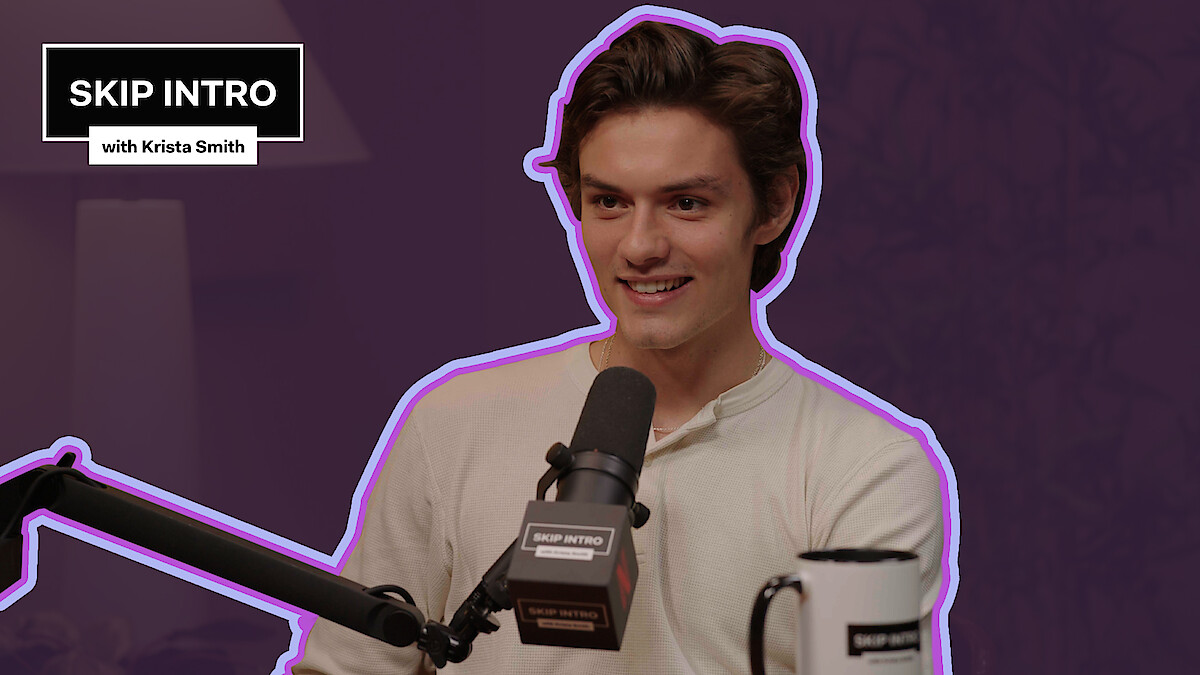
This feature originally appeared in Issue 21 of Tudum Magazine.
